




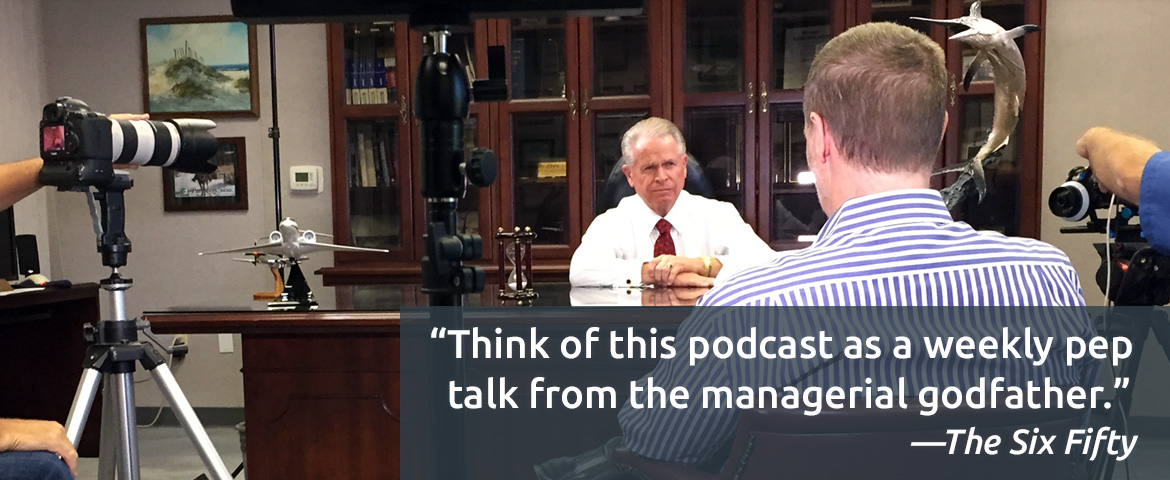
Tough Things First Podcast
The Tough Things First podcast is where you receive short bursts of Ray Zinn’s leadership, executive and entrepreneur’s wisdom. Tough Things First podcasts are typically five minutes long, giving you one important concept to ponder for the rest of the day.

Subscribe to the podcast via:
iTunes | Spotify | Google Podcasts | Stitcher | Pocket Casts | TuneIn | RSS
- Aug2620200

Worker Decentralization
Read moreWorld circumstances put more people in a work-from-home situation and companies forced to manage it than ever before.
In this Tough Things First podcast, Ray Zinn explores the trend and its drawbacks.
Rob Artigo: Rob Artigo here, your guest host for another edition of the Tough Things First podcast with Ray Zinn. I’m a writer and entrepreneur being invited back. Always a pleasure, Ray.
Ray Zinn: Rob, it’s all good to have because you have all these great questions you want to discuss.
Rob Artigo: Well, I think this one’s going to be an interesting topic because with all the pandemic and everything, people’s lives have changed a lot. Many people are working from home. I can’t think of a more glaring example of work from home possibilities than what we’ve witnessed during the pandemic. I read an article by a top UBS executive who laid out some moves by the Swiss bank to tackle the future of work, and they’re rethinking their real estate, its footprint out there. They’re also using lessons from the pandemic to accelerate change in all kinds of different ways.
I know that can be a can of worms in many ways because it can go off in so many different directions, but let’s look specifically at businesses, large and small, startups that can be five or six people to companies like Google or Facebook. I know some people working for Facebook who’ve been working from home for months and months on end and not going into their gigantic campus that they have there in the Silicon Valley. So let’s look at that, extreme staffing levels maybe to just a skeleton crew and so many people working from home. Is reducing brick and mortar footprints for big companies or even small companies, worker decentralization, that’s in not having them at a central workplace but having them work from home, is that the wave of the future?
Ray Zinn: Well, it certainly will be. This is kind of getting off the subject a little bit, but I haven’t been able to get in to see a barber since March. So my wife has been cutting my hair, and she’s learned to cut it and she’s doing a good job. So in my case, I won’t be going back to the barber again. I’ll just had my wife cut my hair. So it’s that similar situation, people having to eat at home now are getting out of the habit of going out to eat. I have a son-in-law, my daughter and her husband, go out to eat four times a week, but they haven’t been able to save pandemic. They’re out of the habit of going out to eat, so they’re just learning to eat at home. (more…)
- Aug122020

Greedy CEOs
Read moreSome CEOs are greedy, for their wallets, for market share, for fame.
Silicon Valley’s longest serving CEO has seen them come and go, and now tells you how to watch out for them
Guy Smith: Hello, faithful listeners in the Tough Things First podcast arena. This is Guy Smith. I’m your host today. And as always, we’re having a chat with the longest serving CEO in Silicon Valley, Mr. Ray Zinn. And we’re going to talk about something which I find intriguing, we’re going talk about greedy CEOs and the damage they do to their companies.
We see quite a bit of this in Silicon Valley, CEOs who have jettison ethics and a few other things in order to get those top line revenues up, and to make themselves or their companies look very good in the public eye, only to have them eventually look very bad in the public eye. So we’ll jump into that right away. And hello, Mr. Ray Zinn. How are you today?
Ray Zinn: Doing fine, Guy. Thanks again for being with me on this program.
Guy Smith: Well, these chats I have with you are the best business education I have ever gotten in my life. And that’s saying a bit, because I have a degree in management sciences. And so, drinking from your fire hose is quite a satisfying thing for me.
So, let’s talk about these greedy CEOs. I’m not going to drop names, but anyone who’s been working in Silicon Valley can probably think about half a dozen of these gritty CEO types right off the top of their head. They have this maniacal pursuit for top line growth at all cost. And I think it’s that all costs, which is defining this. So why do CEOs do this? I mean, you ran a company for 37 years. You were profitable all but one year, and that one year was the outlier year at the dot-com implosion.
You never had to chase that top line growth. You were always more worried about the bottom line growth. So why do other CEOs go running mashugana off into the field chasing this top line growth? (more…)
- Jul292020

Toxic Corporate Culture
Read moreHow do toxic corporate cultures arise, and how do you cure them? The Silicon Valley leader with the lowest employee turnover rate tells you.
Guy Smith: Hello, and welcome to another episode of the Tough Things First podcast, where we pick the brain of Silicon Valley’s longest serving CEO, Mr. Ray Zinn. I think today’s going to be an interesting topic, at least for me, because we’re going to talk about toxic corporate cultures. I have been in my share of those in my past. My name is Guy Smith. I’m your host today and with us again as always Mr. Ray Zinn. How are you, sir?
Ray Zinn: Well, we’re doing fine. It’s a beautiful day outside. Yesterday it was kind of funny had a Tom turkey gobbling around my yard, which was a first for me that was kind of interesting to see him wandering around. My wife said, “Oh, early Thanksgiving.”
Guy Smith: Well, when I finally left Silicon Valley and went out to North Carolina, I’ve got turkeys and black bears and all sorts of things roaming around in my front yard, it’s a veritable zoo out there. Let’s talk about the zoo of toxic corporate cultures because boy, those places can seem like a dog eat dog world. What I’m really curious about, more than anything else is what causes a toxic culture to develop? I mean, what are the seeds and how did those seeds grow to the point where an organization is just all about backbiting and all the negative things that make organizations not work well?
Ray Zinn: I’d say in one word, it’s apathy, apathy toward having a corporate culture. Like a stream, it’s going to seek the path of least resistance. When you talk about apathy toward a corporate culture, just letting whatever culture is dominant prevail, and that’s a sad thing. It’s become more of a live and let live kind of mentality or work and let work as you would.
Guy Smith: That’s an interesting contrast, sir, because I’ve studied a little criminology in my past. I know that in certain inner city subcultures, there is a complete apathy towards the community towards your fellow man. I think you’re onto something here. Once that apathy settles in, then it becomes the norm and no one cares enough to try to improve the situation.
Ray Zinn: Well it’s apathy toward obeying the law. Anytime you have apathy toward anything, apathy toward quality apathy toward service, apathy toward allegiance, apathy toward loyalty, apathy toward country, apathy toward anything it’s going to become toxic.
Guy Smith: Well, and that may explain a little bit about our current political conundrum. Where does this apathy normally start from? I mean, does it start from the bottom or does it start from the top or can it start anywhere? (more…)
- Jul152020

Being Best When You Aren’t Feeling It
Read moreIt can sometimes be painfully obvious we’re not physically or mentally up to a task, but what happens when we turn the situation into an opportunity to challenge ourselves?
Ray Zinn tells us in this Tough Things First Podcast that we can learn surprising things about ourselves with the attitude that “the show must go on.”
Rob Artigo: Rob Artigo here. Your guest host for another edition of The Tough Things First podcast with Ray Zinn. I’m a writer and entrepreneur in California. Being invited back always a pleasure. Ray, how you doing?
Ray Zinn: Oh, it’s always enjoyable to do these with you, Rob. Doing great.
Rob Artigo: And I appreciate it too. And I know you have some appreciation for the theater and I know you’ve probably heard the saying, the show must go on. And of course, that’s a reference to a stage acting reference. Basically, the show depends on ticket sales. The audience must get the show that they came for. If the star or the key players can’t perform because of illness or something else, the show loses money and it fails. So then becomes the saying, the show must go on. So we know that life can be that way. And business is often that way. The show must go on. And I’m not saying you work when you got the flu and 102 degree temperature or something like that. You stay home and take care of your health, that’s good.
And hopefully you have a plan for having people pick up the Slack when you’re not around, but I’m talking about, when you are at work, when you are available to do the job, how do you perform at your best when you aren’t feeling your best? I mean, when you feel wrecked and tired and you still have to put up the the performance in the work, the standards that you live by. They say, “I feel like a million bucks.” Let’s say you feel like 52.95 and you have to perform like a million bucks. How do we do that in the work environment?
Ray Zinn: Well, it goes to the saying also, when the going gets tough, the tough get going. And so I know you’re not referring only to the people with 102 degree temperature that are still performing their particular show because there are people who do that. I mean, you hear about this all the time that somebody who had pneumonia or somebody who had some terrific illness or cancer. Look at Rush Limbaugh. I mean, he’s continued to do his daily podcast. (more…)
- Jul012020

Pitching Your Company – The Top Three Tough Things
Read moreSilicon Valley’s longest serving CEO talks about the three tough things to do when pitching your company.
If you don’t do these, don’t bother the investors.
Guy Smith: Hello everybody and welcome to another episode of the Tough Things First podcast. And this is one of our specials. We’re doing this periodically. We are talking with Ray Zinn, the longest serving CEO in Silicon Valley. And we’re getting from him the top three tough things that a business leader needs to consider for a particular business episode that they’re facing. And what we’re going to do today is going to be so choice for the people in Silicon Valley, all the founders, all the co-founders, all the startup aficionados. It’s the tough top three things to consider when you’re pitching your company. And I was in Silicon Valley for over 22 years, I’ve been on both sides of the table pitching and hearing pitches and I’ve got to tell you, after all this time, a lot of people in Silicon Valley still don’t get it right. I have personally turned down, probably I’m going to say about 75 different presentations simply because the people weren’t even prepared to give a presentation, which of course gave me no faith that they could run a company.
So first let’s welcome on Ray Zinn. Hello Ray, how art thou?
Ray Zinn: We art very good, Guy, thank you. It’s a beautiful day here and I’m just glad to be with you.
Guy Smith: Oh, I’m always glad to be with you. It’s educational in ways that I can not begin to explain. So let’s jump into this pitching your company, which is kind of like a national pastime in Silicon Valley and expanding nationally as we begin to see how entrepreneurial centers are kind of erupting in various places around the country. So what are the top three tough things that a founder needs to consider when they’re pitching their company?
Ray Zinn: Well, the message should be very clear. In other words, if you can’t get your message across within the first minute or two, you’re probably going to lose your audience. And so that’s one of the first thing is to have that mission statement so clear and so precise that they immediately understand what it is that you’re doing and when and where you’re headed. (more…)
- Jun242020
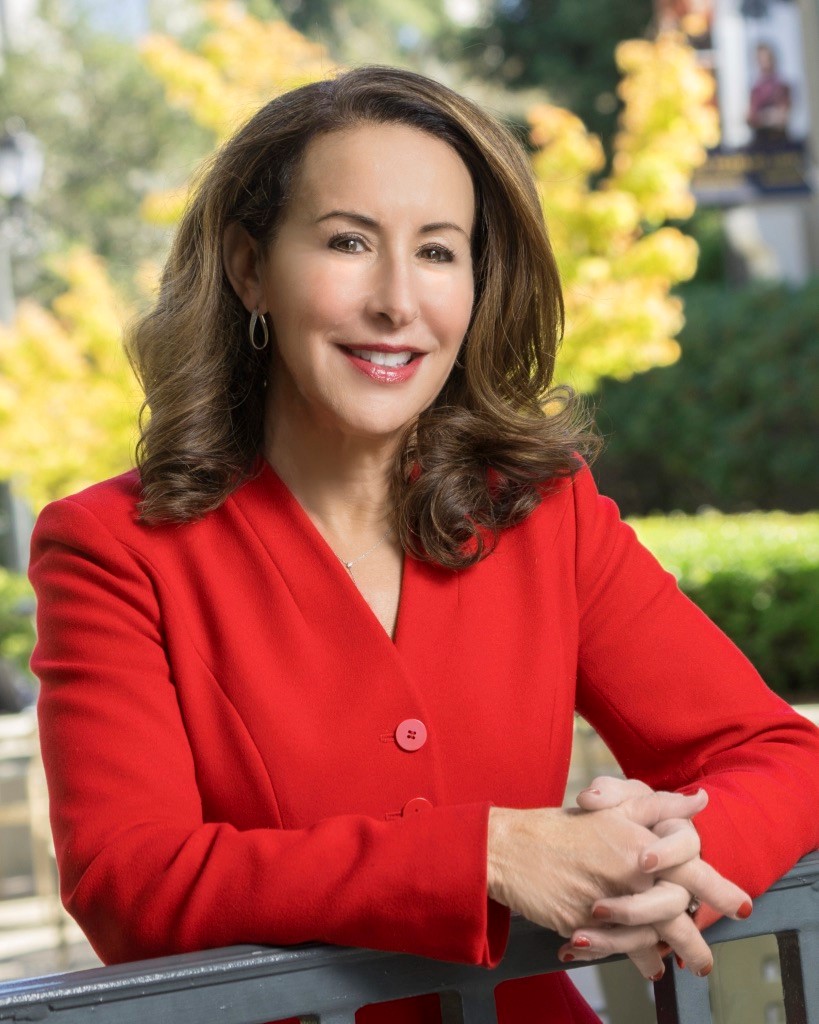
Corporate Culture, Part 3 – in conversation with Professor Jennifer Chatman
Read moreThird and final part of a series where Silicon Valley’s longest serving CEO chats with Professor Jennifer Chatman, a Distinguished Professor of Management and the Associate Dean for Learning Strategies at the Haas School of Business at UC Berkeley.
Professor Chatman is also the Director of the Berkeley Culture Initiative, a program with the goal of identifying the most promising opportunities and challenges facing leaders who harness organizational culture as a strategic resource.
Guy Smith: Welcome to the third and final episode in this three part series of the Tough Things First podcast, where with the help of an expert and the experience of Silicon Valley’s longest serving CEO, we are exploring the topic of corporate culture, what it is, how you shape it, how it facilitates innovation, performance, and everything else that’s necessary for your company. Now, if you did not absorb the first two installments of this series, you might want to give them a listen first. We cover how leaders shape culture, how and why it affects innovation. And in Silicon Valley, innovation is everything. So today we’re going to wrap up the discussion and we’re going to talk about challenge and performance.
Now for this series, we’re joined by Professor Jennifer Chatman, distinguished professor of management and the Associate Dean for learning strategies at the Haas School of Business at UC Berkeley. Professor Chatman is also the Director of the Berkeley Culture Initiative, a program with the distinct goal of identifying the most promising opportunities and challenges facing leaders who harness organizational culture as a strategic resource. So, welcome Professor Chatman, and thank you for joining with us for these three episodes.
Professor Chatman: It’s great to be back again, Guy.
Guy Smith: Wonderful. And as always, Ray Zinn, Silicon Valley’s longest serving CEO and a fellow who knows a heck of a lot himself about positive corporate cultures. Hello, Ray.
Ray Zinn: Hi, Guy. Thank you for helping us put this series together. And again, express a deep appreciation to Dr. Chatman for her willingness to help us with this important series.
Guy Smith: We’re going to start this one just a little bit different. Really, I’m going to pitch a question to Ray because I suspect you have faced more than a few culture change moments in the 37 years that you led Micrel’s semiconductor. So tell us a little bit of your perspective about leading an organization culture change. And then if you will, professor, discuss why changing culture can increase team and organizational performance. So Ray, what kind of organizational culture changes did you have to work your way through?
Ray Zinn: Well, life is a learning process. I mean, when we stop learning, we actually die. So, I just learned in my previous job before starting Micrel, I learned by being an employee at these various other companies, what seemed to work and what didn’t work. I’m a student. I’ve always been a student my whole life. Even though I got a master’s degree in business, I still felt I had more to learn. And so I really studied all these different companies and what seems to work and what didn’t work. Even if I didn’t work for them, I would look at them. For example, Jack Welch at GE. I Looked at what he was doing, what worked for him.
And so I really, really am a student of what works and what doesn’t work. And I try to take the best of these different companies and what worked for them and tried to incorporate them, or not tried, I did incorporate them at Micrel, the company that I founded and ran for 37 years. So was that book, Good, Better, Better, or Good, Better, Best, or whatever it is. And so I just wanted to make Micrel the best that there is in the world as far as a company. And that means I had to have the best or the very best culture. So, I learned because I worked at different companies for a number of years what worked and what I thought didn’t work. So that’s how I got started on Micrel. And then I just kept perfecting it and working until I got to the point where I thought that we could be a very efficient and productive company. In fact, Micrel was considered to be the biggest little company in the world.
Guy Smith: So professor, talk to us a little bit about changing culture and how this relates to increasing team and organizational performance.
Professor Chatman: Well, sure. So in the first two podcasts, we talked about the three criteria for developing an effective culture. The culture needs to be strategically relevant, strong, and adaptive over time. And so if you look at your organization and recognize there are some gaps between where you’d like to be in terms of those three criteria and where your organization actually is, well, that means you have a change project on your hands. And so we talk about there being four levers for changing a culture when you have gaps. And the four levers are pretty straightforward, and these are good places to start to look for ways of making your culture more effective, leveraging your culture for strategic success. So let me just talk through briefly what each of the four is. (more…)
- Jun172020

Corporate Culture, Part 2 – in conversation with Professor Jennifer Chatman
Read morePart two of three in a series where Silicon Valley’s longest serving CEO chats with Professor Jennifer Chatman, a Distinguished Professor of Management and the Associate Dean for Learning Strategies at the Haas School of Business at UC Berkeley.
Professor Chatman is also the Director of the Berkeley Culture Initiative, a program with the goal of identifying the most promising opportunities and challenges facing leaders who harness organizational culture as a strategic resource.
Guy Smith: Welcome to the second in a three part series of the Tough Things First podcast, where we, with the help of an imported expert and the experience of Silicon Valley’s longest serving CEO, are going to explore the topic of corporate culture, what it is, how you shape it, how it facilitates innovation and performance, and quite a bit more. Now if you did not listen to the first installment of this three part series, you might want to give it a listen first. Not essential, but it does lay some ground work and helps us more deeply investigate what corporate culture is and why it is so vitally important.
For this series, we’re joined by Professor Jennifer Chapman, distinguished professor of management and the Associate Dean for learning strategies at the Haas School of Business at UC Berkeley. Professor Chapman is also the director of the Berkeley Culture Initiative, a program with the distinct goal of identifying the most promising opportunities and the biggest challenges facing leaders who harness organizational culture as a strategic resource. So welcome Professor Chapman, and thank you once again for being with us.
Professor Chatman: Thanks Guy. I’m glad to be back.
Guy Smith: We’re glad to have you back too.
Ray Zinn: I’m glad to have her back too, Guy.
Guy Smith: And that was Ray Zinn, the longest serving CEO in Silicon Valley and a man who’s no stranger to shaping corporate culture himself. Hello Ray, always good to be with you.
Ray Zinn: So glad to be here Guy, with such a rockstar like Professor Chapman. So I really appreciate her coming back on and I’m very anxious to do this particular podcast.
Guy Smith: Well let’s get on with it. Now in episode one, Ray and Professor Chapman discussed how leaders can create or craft a strategically aligned execution based culture. So today, they’re going to discuss the adaptability advantage and how business leaders can cultivate a culture of innovation. Now Ray’s company, Micrel, was highly innovative. Ray himself holds numerous patents, but first professor, let’s start with you. Draw Ray into a discussion about why culture impacts innovation and how a leader makes that particular combination happen? (more…)
- Jun102020

Corporate Culture, Part 1 – in conversation with Professor Jennifer Chatman
Read morePart one for three in a series where Silicon Valley’s longest serving CEO chats with Professor Jennifer Chatman, a Distinguished Professor of Management and the Associate Dean for Learning Strategies at the Haas School of Business at UC Berkeley.
Professor Chatman is also the Director of the Berkeley Culture Initiative, a program with the goal of identifying the most promising opportunities and challenges facing leaders who harness organizational culture as a strategic resource.
Guy Smith: Hello again, and welcome to another episode of the Tough Things First podcast and this is the first of a very, very special three-part series of Tough Things First where with the help of a particular expert and the experience of Silicon Valley’s longest serving CEO, we’re going to explore the topic of corporate culture; what it is, how you shape it, how it facilitates innovation performance, and quite a bit more. For this three-part series, we’re joined by professor Jennifer Chapman, distinguished professor of management and the associate dean for learning strategies at the Haas School of Business at UC Berkeley in California. Professor Chapman is also the director of the Berkeley Culture Initiative, sorry about that, a program that has the distinct goal of identifying the most promising opportunities and the biggest challenges facing leaders who harness organizational culture as a strategic resource.
Now, Professor Chapman’s CV goes on for quite literally 27 pages. Just her list of publications alone, take up five pages, so rather than recite more of that, let’s instead get started with today’s podcast. First off, welcome, Professor Chapman. Thank you so much for being here today.
Professor Chatman: Thanks, Guy. Nice to be here.
Guy Smith: Of course, on the other side, we have Silicon Valley’s longest serving CEO, a man who is no stranger to shaping positive corporate cultures himself, Mr. Ray Zinn. Hello again, Ray.
Ray Zinn: Hello, Guy and hello, Jenny. So happy to be with both of you.
Guy Smith: I think this is going to be an exceptional three-part series of podcast. I’m going to step back and let the big brains have a discussion about today’s topic, but to go ahead and get started, we’re going to put the question on the table, the question we’re exploring today. Professor, let’s start off with you. How can leaders create a strategically aligned, execution-based culture in their teams or perhaps in their entire organizations?
Professor Chatman: Well, that’s a great question, Guy. Let me start by putting together an argument for why it’s so important to pay attention to culture and then we can talk about to do it. The basic idea here is that no matter what you do or don’t do as a leader, a culture will form. That’s not the question. The question is whether the culture that forms is one that helps you execute on your strategic objectives or worst case scenario, a culture that actually precludes you from achieving your strategic objectives. It’s really not a question of how to create a culture. It’s really a question of how to shape the culture that has developed in your organization and how to ensure that that culture is actually aligned with your strategic priorities. That’s the first piece. (more…)
- Jun032020

Make Points, Not Enemies
Read moreUnskilled communicators can create a breakdown in conversation at every turn, sometimes making enemies in the process.
In this Tough Things First Podcast, Ray Zinn explains how to avoid pitfalls we often create for ourselves using the wealth of knowledge he learned over decades at the highest levels of the tech industry.
Rob Artigo: Rob Artigo here once again, your guest host for this edition of The Tough Things First Podcast. I’m a writer and an investigator in California. Being invited back, always a pleasure, Ray, how you doing?
Ray Zinn: I’m doing great, Rob. So good to be back with you again.
Rob Artigo: Well, it’s happened to most of us at one time or another. It can be at a board meeting. It could be in a design strategy session. It can be just a discussion in passing about where to put cubicles in an office building. That conversation turns into controversy simply because a point we’re trying to get across feels like, to the other person, at least, that it’s a personal attack and maybe you could even make an enemy out of that person. We know that communication is a two-way street, but how do we make a point with someone large or small in the course of the conversation without putting somebody on such a defense that we end up making an enemy out of that person and they shut us off and they don’t want to listen to what we have to say?
Ray Zinn: That’s a challenge of making your point without making an enemy. It depends upon how we sharpen our point. If you sit there, making this as an example, you’re whittling on a stick and you keep sharpening that point and you keep pointing at somebody, they’re going to think they’re your enemy or they’re become your enemy. So, don’t keep sharpening your point. That’s one of the things that you need to do when you’re making your point so that you don’t create an enemy is don’t sharpen it. Don’t make it personal. Don’t make it emphatic. Don’t make it so that it comes across as being you’re harming them because then they will become your enemy. So the challenge is to how to make your point without sharpening it. (more…)
- May202020

Setting Business Goals
Read moreIf Tough Things First stands for one thing, it’s setting and achieving goals even when they are difficult.
In this edition of the Tough Things First Podcast, Ray Zinn talks about setting priorities to meet those goals.
Rob Artigo: I’m Rob Artigo, your guest host for this edition of the Tough Things First Podcast. Hi, Ray. It’s good to be back with you.
Ray Zinn: Rob, it’s so good to hear your voice again. Thank you.
Rob Artigo: And it seems like it’s been a long time, but time marches on and here we are doing another podcast and I’m grateful for that. Now, whether they plan to, or not, like me, most people set some kind of goals every single day. Now that could be something easy, like going to the store, just doing the dishes, maybe doing the dishes isn’t always that easy for everyone, but they’re goals nonetheless. And we got to think of things in terms of this podcast for entrepreneurs and business operators, entrepreneurs do the same kind of goal setting, those small tasks that they have to do every day, because they’re just things that everybody has to do. But they also have to keep the future in mind, their business, where they are, where they’re going, and what’s next.
So, let’s talk about setting goals first, and then we’ll talk a little bit about some of the strategies for making sure that those goals come to fruition. So for you, it’s always been important to set goals when operating your business.
Ray Zinn: Well, even running your life. I mean, it doesn’t have to be running a business. I mean, setting goals is really avoiding procrastination and that’s the title of my first book, Tough Things First. We tend to not want to set goals, for one thing, because it’s a lot of work and because we’re not really willing to do the tough things first. And so, when I wrote the book and we hadn’t yet come up with a title for it, I had my staff together and we were talking about what should we title this book? Vona my VP, she just said, Tough Things First. Do the tough things first.
And so, the only reason we have a goal is to get us to look up, to aim higher, to reach out and to lengthen our stride to be more purposeful in what we’re doing. We don’t have to set goals for things that are almost secondary, like eat once or twice a day or three times a day, or whatever, or go and get the mail. I mean, setting goals is really trying to reach up. In other words, trying to get us to go above and beyond where we are, not just to repeat something we did the prior day to better ourselves. And so, that’s a whole concept of setting goals. (more…)
- May062020
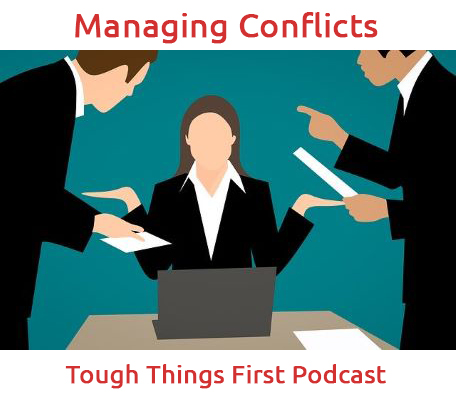
Managing Conflicts
Read moreIn business and in life there are conflicts. Some of those are internal but threaten the external when we lose control.
In this Tough Things First podcast, Ray Zinn explores how entrepreneurs can find a path to being open minded with conflicting with our core principals.
Rob Artigo: Welcome back to another edition of The Tough Things First podcast. I’m your guest host, Rob Artigo. I’m a writer and entrepreneur in California. Hi, Ray.
Ray Zinn: Hi, Rob. So good to be with you again. It’s been a while.
Rob Artigo: Good to be back, of course. Core principles define us and we don’t typically, like we’re doing a podcast here, we don’t just broadcast our core principles to everyone, but if they’re really true principles, at least in my eyes, they’ll manifest themselves in many ways that other people, that everyone will see. I mean, even if we’re not telling them what our core principles are, people will notice what they are even if they can’t define them right away.
Ray Zinn: Exactly.
Rob Artigo: But we’re also asked to be open-minded. Ray, in your experience, are there times when being open-minded is actually challenged by conflicts with our core principles?
Ray Zinn: Well, certainly. If you have a principle that you hold dear to your heart, then someone wants to bring a counter to that or maybe argue with you about that, debate you on that subject, you can get your, as they say your dander up, your hackles up, and then of course as soon as you do that, you shut your ears off. You no longer are going to be listening because you’re in a defend mode. The key is how do you maintain these very solid core principles, and even when they know that you have these core principles, and yet they’re going to want to argue and put you in a defensive mode. There’s a saying that goes, the best defense is a good offense. What you want to do of course is to make sure you don’t get into a defensive mode, because as sure as you do, you’re going to shut your mind off. (more…)
- Apr222020
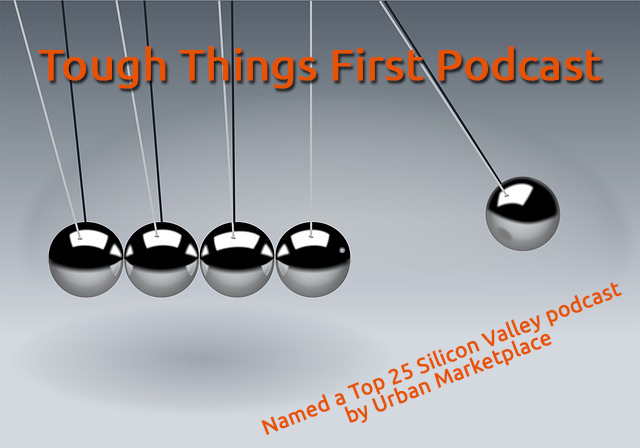
Bad Decisions, Good Outcomes
Read moreEntrepreneurs are bound to make bad decisions, but it’s how they handle them that is the difference between success and failure. Ray Zinn has seen it all and in this Tough Things First podcast he explains how successful business operators process bad decisions differently.
Rob Artigo: I’m Rob Artigo, your guest host for this edition of the Tough Things First podcast. Hi Ray, it’s going to be back with you.
Ray Zinn: Well, thanks Rob. I appreciate you joining us again today.
Rob Artigo: I’ve got another question about decisions. We talk about decisions on the show frequently and I want to talk about bad decisions. Entrepreneurs make decisions all the time. They make decisions daily and they’re big, sometimes very easy decisions. And sometimes they’re small, very hard decisions. And some are just based on analysis and projections or educated guesses. So no matter how much though that goes into it, some decisions are not going to turn out the way you expect. How does a successful entrepreneur deal with bad decisions?
Ray Zinn: Okay, well let’s first of all talk about a bad decision. They’re always going to be with us. We’re not perfect as human beings. We don’t have privy information. Decisions we make, if the statistics bear out correctly, they’re only good 50% of the time. It’s like flipping a coin.
So what is different about a bad decision is that it’s a decision that’s not corrected. So, that’s the bad decision. And so, I want to make sure the listeners understand what a bad decision is. It’s an uncorrected decision is a bad decision. I make mistakes every day, and so you could say, well that was a bad decision, but then I correct it. And so, a bad decision is not bad if you correct it. As they say, no harm, no foul. So if you make a wrong decision and you immediately correct it or to the extent you can immediately correct it, then it’s not really a bad decision. Does that make sense? (more…)
- Apr082020

Managing Debt and Corporate Growth
Read moreWhen should a company take on debt to enable growth? Silicon Valley’s longest serving CEO has some answers.
Guy Smith: Hello everyone out in podcast land, welcome again to another episode of the Tough Things First podcast. I’m your guest host today, Guy Smith. And as always, we’re having a little sit down chat with Silicon Valley’s longest serving CEO, Mr. Ray Zinn. How are you today, Ray?
Ray Zinn: Trying to stay dry, Guy. How are you doing?
Guy Smith: Well, it’s warming up nicely out here, and boy I am aching for spring, that’s for sure.
What I want to talk about today, a subject dear to my heart, managing debt and managing growth. Founders in startups face an interesting inflection point during their growth cycle. It’s real tempting to go out and score some debt in order to try to rise up to the next level of growth, certain investments that need to be made around the company.
When should a startup consider debt, when should they just flat out avoid it?
Ray Zinn: Debt never sleeps, it’s going to be there 24/7. When you go after debt is a mater of what your growth needs are, if your trajectory exceeds what your cashflow is. Because often, you can grow through cashflow, if you’re profitable, and that’s the way I prefer to do it is to be profitable, and grow through profitability. But, if you’re growing faster than you can grow through cashflow, then debt is fine, presuming that you can fund the debt.
In other words, debt is something that has to be paid every period, whatever that period that your lender sets or you agree to, so that’s the key. The key is make sure that whatever debt you take on, that you can make those regular payments on that debt. (more…)
- Mar252020

Surviving a Downturn – Three Tough Things series
Read moreWhat should a business leader, especially a startup CEO, do to survive a downturn.
Ray Zinn, the longest serving CEO in Silicon Valley, has survived many of them and shares his knowledge in this first in our “Three Tough Things You Need To Do” series.
Guy Smith: Hello everyone and welcome to another episode of the Tough Things First podcast and this is a special event today. This is the first in a series of periodic podcasts that we’re going to do on the three tough things that you need to do in order to have a healthy business. We’re going to pick a different topic every time, but we’re going to pick on Ray Zinn’s wisdom on really the critical elements that an entrepreneur or a business leader needs to face, needs to stare down, needs to take control of in order to make sure that they will succeed in business. Before we go, jumping into the topic today, which is the three tough things that you need to do to help your business survive in a downturn, we’ll bring on Ray Zinn. Hello Ray, how are you today?
Ray Zinn: Doing great, Guy. Thanks for doing this podcast with me.
Guy Smith: Oh, I love doing these podcasts. I learned so much from you per unit time that it’s like drinking from a fire hose. I feel like I’m getting one of the best educations in my life whenever I do a podcast with you.
Ray Zinn: Well, thank you.
Guy Smith: So let’s dive in because right now when we’re recording this, it’s early 2020. There’s no recession probably going to happen this year, but maybe next year. That means there’s going to be an economic downturn and there’s probably a lot of entrepreneurs in your audience who are already kind of anticipating that, but they may not be sure about what to do in a big downturn. So why don’t we start off. Why don’t you give me the first thing that a business leader needs to do in order to be prepared? The one tough thing that maybe they don’t want to do but they got to do in order to make sure that they survive a downturn.
Ray Zinn: Well, there’s two issues that we need to back up a bit here, Guy, because there’s two kinds of downturns. One, a downturn is a reduction in revenue and so it could happen as a startup. In other words, you could not have any revenue and that’s a downturn in that sense of the word, because all startups start at the bottom as they say, or you could be having an ongoing running business and then you hit some kind of snag and the business falls off and then how do you deal with that? So there’s two kinds of, as I say, two kinds of downturns and both are important. Yesterday, I met with a couple of guys who, or actually three guys, who were a nine-year old startup. So can you imagine how you call yourself a startup after nine years? But they’d already gone through $16 million and had no revenue.
So they were talking to me about what I like to invest in their business and I said, “No.” They said, “Well, why not?” I said, “Are you kidding me?” You’ve been at this for nine years and you still are … no revenue. That is a serious issue, I think, for a startup is not to have some kind of recovery plan or at least a, “How do I stop the bleeding?” I learned that they had nine people in their company, if you want to call it a company, and they were all drawing $110,000 a year. (more…)
- Mar112020

Social Causes and Smart Business
Read moreStories and charitable causes are a dime a dozen in the modern start-up era. What is the right balance to market a business while being civic minded? In this edition of the Tough Things First Podcast, Ray Zinn discusses the purpose of social causes and image building in business.
Rob Artigo: Rob Artigo here, your guest host for another edition of the Tough Things First podcast with Ray Zinn. I’m a writer and entrepreneur in California. Being invited back is always a pleasure, Ray. Thanks again.
Ray Zinn: Hey Rob, it’s always good to have you on the program, so thanks again for joining us.
Rob Artigo: You’re welcome. We hear a lot these days about uniting the startup with a story. I know that Marcus Lemonis is on CNBC’s The Profit, he comes to mind because I’ve heard him talk to people about when they’re laying out their displays or their concepts for their stores to have some kind of story that they’re trying to tell, and that can be the story of the single mom who invented a mop or something and a certain kind of special mopping device, or being able to get that story built into the concept of the company, and then also … A lot of entrepreneurs are coming out and saying, not only are we a good company and we’re aware of what’s going on in the world, but we’re also charitable and we’re good people. So every time you buy our product, we’ll donate some money to … I think one was for every pair of eyeglasses they sell, they’ll give a pair to a kid who needs them in a poor part of Africa or something. Or, for example, if you buy our water, you’ll contribute some of the proceeds to a system for cleaning up the plastics in the ocean or something.
These are ideas, I think that a lot of young people are going into business going, “Well I have to show that I’m being charitable so I have to do that.” I’m not sure if it’s a matter of them sincerely feeling like they want to do the right thing, but feel like they have to do the right thing, but you understand what I’m saying here. Is this a good way, a good approach with the business is it is something that you need to do? Both the story and the charity?
Ray Zinn: It’s all part of building your brand. The brand is something you recognize. It’s like Levi with that picture of two horse teams or mule teams pulling on each side of the pair of jeans showing how tough they are. Ford talks about Ford being Ford tough, and so you’re trying to build a brand. Hewlett Packard, their brand was built around doing it the HP way, quality, reliability and so forth. So every company in order to enhance their brand has to have some story. In other words, how do we tell … Because people remember stories. They don’t necessarily maybe remember a brand, but they remember a story, whether it be like air … Forgot now the – (more…)
- Feb262020

Dictator Leadership
Read moreSometimes you choose a management style and sometimes it chooses you. In this edition of the Tough Things First Podcast, Ray Zinn explains the difference in extremes and how to be the best manager you can be.
Rob Artigo: Rob Artigo here once again, your guest host for this edition of the Tough Things First podcast. I’m a writer and investigator in California. Being invited back is always a pleasure Ray.
Ray Zinn: Well, always good to have you on the program, Rob. Thank you for joining us.
Rob Artigo: Ray, I have a copy here of a column that you recently wrote and it’s Alpha Beta Blended Leadership. It’s a really good article. I suggest people go out there and track it down. Ray, you know, it’s about the difference between leadership styles.
Rob Artigo: It made me think about in the military we used to say hey, this is not a democracy, this is a dictatorship. Just go do what I said, you know. We’re not taking a vote on this. Now there are two different styles there, and your article, it really says that they’re not mutually exclusive. It’s part dictatorship and it’s part democracy.
Ray Zinn: Right. You know it’s interesting that we get labeled, so this concept of this Class A personality or Class B or Super A or whatever, those are labels, and people tend to put these labels on us. So if you are in a leadership capacity in a company you’re probably going to get labeled as a Class A personality generally speaking, or a Super A or whatever, and that’s what we refer to as the alpha personality person who has to always have their way.
In leadership you tend to get saddled with that, because what happens is is that leader or the CEO, vice-president, whatever, they’re the ones making all the decisions, and if you don’t agree… As a subordinate you don’t agree with that decision, you tend to think of that person as being an alpha, or being a Super A personality, in other words always have my way or the highway kind of thing. (more…)
- Feb122020

Decide Differently
Read moreEntrepreneurs make decisions all day, but do successful entrepreneurs make decisions differently? In this Tough Things First podcast, Ray Zinn explores the process of effective decision making.
Rob Artigo: Welcome back to another edition of the Tough Things first podcast on your guest host, Rob Artigo, writer and entrepreneur in California. Hi, Ray.
Ray Zinn: Hello Rob.
Rob Artigo: Well, you know Ray, there’s really not a single person on this planet who doesn’t make decisions daily, but an entrepreneur makes multi-tiered and often complex decisions almost as frequently. So thinking about small decisions and big decisions, do successful entrepreneurs make decisions differently?
Ray Zinn: Absolutely. So what entrepreneurs can do is, because they are thinking outside the box and are listening to their gut as well as their head, they can make a decision with a lot less information than say a regular person because it’s called process by analysis. The ordinary person who is not entrepreneur tends to overanalyze something because they’re afraid to make a mistake. And as you know, entrepreneurs don’t worry about mistakes, they just move forward. And in fact, people who are good actors, when they make a mistake, it doesn’t show because they just keep going along and you never hear the mistake. I was talking to a professional organist and he said, “Did you notice the mistake I made?” I said, “No, I didn’t.” He says, “Good.” So he was able just to cover it up.
Ray Zinn: So, while it may look like the entrepreneur didn’t make a mistake, he did make a mistake, but he corrected it. So the advantage of being an entrepreneur is that you can make decisions with less information, and if you do make a mistake, you correct it quicker. Whereas if you’re not an entrepreneur and you’re going to analyze it inside and out, what’s going to happen is, is that you’re going to want to make sure that you’ve looked at every single parameter, every single direction before you can go back and move forward. It’s kind of like they walk into a room that’s completely black and they just stop. Whereas an entrepreneur, if he walked into a black room, would start… Or dark room, would start putting his hands out and start feeling his way around, and when you get to the other side or wherever he had to be, whereas an ordinary person who is risk averse would just stop dead and say, “Hey, turn the lights back on.” (more…)
- Jan292020

Bad Managers
Read moreAt one time or another, we’ve probably all worked for a bad manager and perhaps wondered if the boss’s boss knew that manager had issues. In this Tough Things First podcast, Ray Zinn walks us through how to recognize a bad manager and how to handle the situation.
Rob Artigo: I’m Rob Artigo, your guest host for another edition of the Tough Things First podcast with Ray Zinn, the longest serving CEO in Silicon Valley. Hello again, Ray.
Ray Zinn: Hi Rob, so good to have you back with us today.
Rob Artigo: And it’s good to be back. And I have another good idea here, I think. We’ve talked a lot on Tough Things First, on this podcast, many times about management and managing those leaders. Some factors are very obvious to me in determining whether or not somebody is a bad leader, but some things are not so easy to figure out and requires experience and expertise and sometimes that’s a learned experience you learn over time. How do I know which leaders are good ones in my business and which ones are not so good?
Ray Zinn: Well, the simple answer is because they meet their goals. In other words, if when you sit down with them establish their goals and their objectives and if they meet them, then they’re probably a good leader. If however, they’re constantly, consistently missing those goals and objectives, either you are not a good leader in the sense of where to helping them set those goals or you are finding that they as individuals are just not capable of leading an organization or a particular function. (more…)
- Jan152020

Managing Managers
Read moreIn a diverse workplace with varying levels of experience and drive, managers come in all types. But knowing how to use them, challenge them and maximize their potential is tricky. In this Tough Things First podcast, Ray Zinn demystifies the art of managing managers.
Rob Artigo: I’m Rob Artigo, your guest host for this edition of the Tough Things First podcast. Hi Ray, it’s good to be back with you.
Ray Zinn: Rob, it’s always good to share these podcasts with you. You always have great ideas and thoughts.
Rob Artigo: This one’s really interesting to me. I don’t know anyone who has as much experience at levels of business, managing managers. You have, you’ve managed presidents, VPs, EVPs, unit managers, production managers. The list is pretty much endless.
So let’s say I’ve launched my business, and we’re 50 or a 100 employees strong. I’ve got some good managers, and I’ve got some production managers, and other managers. So when I’m looking at this business I’ve got, this business model, and I’m looking at the different maybe many divisions that I have, and I’ve got creative conflicts, maybe even near physical confrontations in some cases, with internal conflicts. What’s my first step in figuring out what’s happening here among my managers? If it’s something new to me?
Ray Zinn: Well, it’s a characteristics of all people to form silos. We do that as a family, or husband and wife, we form a silo, meaning that it’s us against the world. And unfortunately we take that to work. And in our groups we tend to want to build the silo, meaning that this is our territory, our turf. And if you start butting in, if you start moving over on our turf, we’re going to defend it. And so that’s the big problem, because that’s a built in conflict. (more…)
- Jan022020

Offshoring
Read moreThere’s no rule that says you must offshore even a fraction of your manufacturing needs, but it’s an option. The problem is knowing why and when to make that change. In this Tough Things First podcast, Ray Zinn answers those questions and puts it all into perspective to avoid costly mistakes.
Rob Artigo: Rob Artigo here, your guest host for another edition of the tough things first podcast with Ray Zinn. I’m a writer and entrepreneur in California. Being invited back is always a pleasure, Ray, how are you doing?
Ray Zinn: I’m doing great, Rob. Appreciate you taking the time with me today and doing another great podcast.
Rob Artigo: Your decades of experience in the Silicon chip industry, I suppose you’ve manufactured all over the world and built alliances as well as products with companies in multiple countries for a single production. Probably, fair to say.
Ray Zinn: Yeap, absolutely.
Rob Artigo: You didn’t start out offshoring, but at some point it made sense. If I’m a small business… or a growing operator here in the Bay area and I’m getting peppered with questions about costs, not pressured about making a cost change, but I’m being asked about it. Where am I at in the process of deciding when to offshore?
Ray Zinn: Well, you look at your costs. That’s the first thing and find out, can I get the same equivalent quality and service by doing some offshoring? Or complete offshoring? Depending upon the kind of product or business you’re in. And, so once you’ve decided that. Once you said, yes I can benefit from offshoring. Then you have to look at where do I offshore? Where do I go? And of course with me at Micrel, I always favor those countries and those peoples that were friendly to the United States. In other words, I would not want to offshore to a place where there was conflict between the country and our country. Because I know that could be short lived as you would, in my offshoring. Offshoring is expensive and to the extent you want to set it up, it’s to bring it back is not easy but I would never offshore to a country where there was political conflict between the… where I am and the offshoring of country is.
Rob Artigo: If I’m looking at my product and I… it’d be impossible to just come up with an example of something. I suppose that would make sense for the purposes of this conversation. But sometimes the product has multiple port… multiple parts and sometimes it’s a single product that’s manufactured on an assembly line that… using your Wafer Stepper for example. Puts the product on there. It’s all part of very high tech stuff. But if you have these different products and some things are done in one spot, but some things are maybe done in multiple spots for the purposes of bringing them all together. It can be very complex and how do I know when I’m prepared to be able to reach out to those different countries and make it work. So that is… it is an advantage. Like you said, offshoring can be expensive and it could end up being a mistake if you do it wrong.
Ray Zinn: Well… various countries are known for their various expertise. Like India is known for its software capability. Malaysia and Southeast Asia are known for their manufacturing… low cost manufacturing. So it’s that sort of… and then Israel’s well known for their technology, their creativity, inventiveness. And so other countries, they have their expertise and so you tend to go to the countries where there is a built-in expertise or at least the countries are favoring that particular expertise. If you just go to a country just because they’ve got low cost labor and they don’t have the expertise that you need your costs are actually going to go up.
Rob Artigo: I suppose that there are no guarantees against intellectual property theft when you’re doing… your offshoring activities, but what kinds of things can I do to mitigate those types of problems?
Ray Zinn: It’s like… locks are to keep the honest people honest, you’re not going to keep the thieves honest. I mean, if the thief wants to break into your house, he’s going to break into your house. We got 10,000 cameras and locked doors everywhere. You want to go to a country where they’re known for their integrity and that they’re not going to be… or then their laws also favor integrity and protection of your IP. Again, if you’re going just to cut your costs and you’re not taking into consideration the political environment, the reputation of that country for its honesty and integrity and protecting your IP. You’re going to lose in the long run.
Rob Artigo: And like you said, again, underscoring the fact that it can be expensive because if you lose your intellectual property and…
Ray Zinn: Right.
Rob Artigo: …if it ends up being sold on some knock off website somewhere, then you’re not getting anything out of it. Except for being the person who did all the hard work to create it and just so somebody else can take advantage of it and sell it for a cheap price. Is it a matter of networking? Reaching out to the people you know, and then finding out who they’re dealing with and who they trust, or how do I get there so that I know that I can trust the people that I’m going to use in these other countries?
Ray Zinn: Well, you can visit those countries that you intend on implementing your offshoring. You can also talk to other companies that offshore there and get their experience. So, there’s a lot of homework you can do. I mean with all the social media and the press has around the world are… because of the internet, we’re so well connected and interconnected that it’s almost impossible not to know and understand the country you’re doing business with. How many countries that you can think of right now that are enemies to the US that if you were to go there, you might even be kept there. You may not be able to even leave. So… go to places where they’re friendly to us or to your particular, if you’re an entrepreneur in India then… or in wherever you are an entrepreneur, in Germany, England. Make sure that the companies… countries that you’re offshoring with are friendly to your particular country.
Rob Artigo: And if you haven’t done all that due diligence. Don’t even bother, right?
Ray Zinn: Exactly.
Rob Artigo: If you step into something, you’re going to step into something that you are not prepared for. If you don’t know the laws of dealing with the those countries or the various… the costs of doing business with those particular countries. Even, I mean I think of Iran, you know there… we just simply American businesses simply just don’t do… can’t do business with Iran because there are restrictions there. And if you go to a place where you don’t know, I mean Iran might be an obvious one but there might be another country out there that, that there is a restriction regarding. And if you don’t know that, then shame on you for just not having done your homework.
Ray Zinn: Yeap. Put whatever country you decide to offshore with, make sure that there’s all going to be a long-term relationship there and that your intellectual property will be protected and that there’s not going to be a political unrest in a near future.
Rob Artigo: Smart decisions will help you in the long run for sure, right Ray?
Ray Zinn: Absolutely. Think smarter, pay later.
Rob Artigo: That’s right. Join the conversation on toughthingsfirst.com. Your questions and comments are always welcome. Make sure you rate this podcast and follow Ray on Twitter, Facebook, and LinkedIn. Thanks again, Ray.
Ray Zinn: Thank you, Rob.
- Dec182019

Balancing the Money Hunt
Read moreFounders may need to go on the “money hunt” to raise capital. But they need to maintain control. Silicon Valley’s longest serving CEO talks about the trade-offs.
Guy Smith: Hello again and welcome to another episode of the Tough Things First podcast, where we explore everything technology, Silicon Valley, leadership, executive management with the guy who’s basically done it all, Ray Zinn, the longest serving CEO in all of Silicon Valley. How are you doing today, Ray?
Ray Zinn: Pretty good, Guy.
Guy Smith: Hey, so let’s talk about where I used to live, Silicon Valley. There is a something that troubles me out there. You’ve spoken to this yourself many, many times and that’s the struggle that founders in startups have balancing between raising money and actually building their companies. One of the things that we see is that the founders go on what we’ve called the money hunt, where they are perpetually under pressure to keep raising round after round after round of money in kind of a blind obsession of raising the top line revenues, in theory, so the VCs can then just sell off the start off to Google or Facebook or whoever might be interested. But the downside seems to be that this takes all the time away from the founder and the CEO and probably hurts their company during its most formative years. So, talk to us a little bit about how the money hunt interferes with actually building a corporate culture and managing the shop.
Ray Zinn: Well this money hunt thing is probably the reason why they don’t succeed. The rule I have is that you raise enough money up front, in the very beginning, to take you to profitability. The reason for that is because once you start the ball rolling, as they say, you want to spend the time developing a company. Now some of these startup guys, these want to be entrepreneurs, they’re more focused on just starting a company and hopefully selling it off sometime in the future. And they’re, hopefully the near future, and they don’t really worry about building the brick and mortar of a real company. And I see that as a serious problem with almost every single company that I’ve looked at over the past three years, is they’re more focused on trying to sell the company even before they start it than they are in building the company.
And I asked him, “Why is that? Why are you so focused on selling the company?” He said, “Well, because everybody asks us what is your exit strategy”. And I said, “Well, I didn’t ask you that.” But they all seem to be focused on the exit strategy. And so that… An exit is not where you want to be. You want to be in the beginning. In other words you want to… It’s like trying to sell the house before you even get the thing built.
So these CEOs or these entrepreneurs need to focus more on developing a company and forget about selling it. That should be a last thought in your mind is exiting. If I were in their shoes starting a company, I would say if somebody asked me what my exit strategy is, my exit strategy is to build a company. I want to build a real honest to goodness company and not one that I’m going to be bailing out of in a few years. So, that takes care of itself. (more…)
- Dec042019

New Tech, Exciting Futures
Read moreIt’s an exciting era in technology. In this Tough Things First podcast, Ray discusses recent breakthroughs that are catching his interests.
Rob Artigo: I’m Rob Artigo, your guest host for this edition of “Tough Things First”, the podcast with Ray Zinn, the longest serving CEO in Silicon Valley. Hello again, Ray.
Ray Zinn: Hey, Rob. You know, it’s always a real delight to have you on the program. You always have these interesting questions and topics to discuss.
Rob Artigo: Thanks Ray, I appreciate it. It’s a great opportunity to be able to chat with you and I learn something, I think, every time. There’s a company out there, an American company founded by a guy by the name of Graham Dugoni. It was founded back in 2014. It’s called yonder, Y-O-N-D-R. And it was in the news recently because in San Francisco or in the San Francisco Bay area, it’s actually San Mateo, there’s a high school that has decided that they’re banning cell phones, during class time. So when you come into class, every or come to school every day, you put your cell phone in this Yondr pouch and it’s locked and then you can’t use it. I think it’s a Mylar protected, I don’t know the exact details, but what they do, all the students put their phones in there so they can’t access them during the school day. But all the teachers have the unlocking mechanism, so that if there’s an emergency or something and they need to redistribute the phones, they can do that quickly no matter where the students are.
And that was a product that I thought, “Oh, that’s kind of cool. That’s a pretty neat thing.” I also saw recently a friend of mine who works for a security firm gave me this little, I don’t know, if you want to call it a little phone charger, USB port connector. It’s a little thing that looks like a memory device, but it’s not. And you plug your phone cord into it and then you plug that device into whatever you’re going to charge it with and it prevents any data transfer from occurring. It strictly deals with power charging your phone so that if you’re interfacing with a car or a charging station at an airport or something like that, there’s no chance that data will be transferred between the devices. That was an exciting thing that I saw pretty recently as a security conscious person. Are there any trends or technology or ideas out there right now that have gotten you excited and you follow what’s happening with them?
Ray Zinn: Absolutely. In fact, the most recent one was, I can’t remember the name of it right now, off the top of my head, but they are able to replicate the brain to some degree, the entire wafer, 12 inch wafer. It’s a computer and it mimics the brain. In other words, it has the ability to crosstalk. And so each, on the wafer, silicon wafer, that’s how semiconductors are made are on Silicon wafers that are 12 inches in diameter, or can be up to 12 inches. And then they have these little circuitries on them. And so what this wafer is supposed to emulate is the brain. And so, that’s amazing to me because as we can better emulate what the brain does, that means we can now make decisions that are similar to what a human would do. And we can make smarter devices or you can even help a person be smarter or more intelligent.
For example, let’s say you have Alzheimer’s and or some form of dementia, and usually it’s associated with short term memory loss. And so the computer, then can, through sensors and so forth, can then collect what’s going on peripherally in your sphere, then it can help you remember. It can jog your memory as you would because it’s recording that information almost like a movie. And so then it can help you then remember names and faces and also surroundings and so being able to replicate the brain, to me, is fantastic. We already have artificial hearts and other organs that we can get artificially. I understand we can even make them through 3D printing. So, the one part organ that we have that is not as easy to replicate, of course, is the brain, which is the heart of our existence is our brain. (more…)
- Nov202019

Founder Overload
Read moreWhy do startup founders kill themselves work themselves to death? They shouldn’t, according to Silicon Valley’s longest serving CEO.
Guy Smith: Hello everyone in podcast land. My name is Guy Smith. I’m your guest host today for the next episode of the Tough Things First podcast, where we’re going to a chat with Ray Zinn, longest serving CEO in all of Silicon Valley. And we’re talk about subject that’s near and dear to my heart, which is being a founder and working your butt off, which oddly enough is probably not a good combination. It’s almost doctrine in Silicon Valley that founders need to kill themselves at their desk working the 80 hour work week, and Ray Zinn has been very vocal about how that’s kind of nuts. So good morning Ray, how are you doing today?
Ray Zinn: Doing just fine, Guy. How’s it there in North Carolina land?
Guy Smith: Well, I can’t complain. The view from my office is an unobstructed view of the Smoky Mountains and it’s a pleasure to come to the office every day.
Ray Zinn: You’re in the office, aren’t ya?
Guy Smith: I am, yeah. So let’s talk about founders. You have been on record on more than one occasion saying that a founder and a CEO on average does not need to work more than 40 or 50 hours a week. Why so?
Ray Zinn: Well, you know, for one thing, the body needs rest. Studies show that you need somewhere around seven to eight hours a night rest, no matter how old you are. In fact, the younger you are, the more rest you need. Even as a new entrepreneur, the more rest you need as opposed to the more work you need. What happens is that if you are just putting in many, many hours with the desire, with the effect to show everybody how hard a worker you are, you’re going to be less efficient. You can only put in so many effective hours a day. Most studies have shown that we’re only productive about four hours a day, which is only half of a workday basically.
Trying to put in 12, 15 hours a day with only four hours of productive work, that means you’re putting in 10 hours of unproductive work, and that’s not good for your people, it’s not good for you, and it’s not good for your family. What you want to do is work smarter, not harder, as I say. The most time you really need to spend… You have to be open a certain number of hours a day, as you would, is in that eight to 10 hours is his max. Your body needs rest and your body includes your mind, and so you needed a diversion. So that’s why I say working more is not better. It’s worse. (more…)
- Nov062019

Technology Investing
Read moreWhat does Silicon Valley’s longest serving CEO, and now a tech investor, think about tech investing and the current state of the industry? In the episode of the Tough Things First podcast, Ray Zinn lays it bare.
Guy Smith: Well, good morning to all the audience and welcome to another episode of the Tough Things First podcast. I’m your host today, Guy Smith. As always, we have Silicon Valley’s longest serving CEO, Ray Zinn. How you doing today, Ray?
Ray Zinn: Well, hopefully better than you are back there with that ice storm. So yeah, we’re doing fine. We might get a little rain, but it looks like a decent day.
Guy Smith: Well, there’s an old joke that meteorologist is the Greek word for liar and all of the forecasts they made for ice here did not happen. So, thank God for that. We don’t need any down power lines. Hey, so what I wanted to talk about today is Silicon Valley tech investing. After your Micrel years, you got into a little bit of investing on your side. I’ve been on both sides of the pitch table in Silicon Valley, so I’m kind of intrigued by some of the commonalities, some of the traits, some of the things that we’re seeing out there in the marketplace in terms of startups and investing.
So now that you’ve been actively on the other side of that table for awhile, what are some of the common traits that you’ve noticed about companies that have been pitching to you for investment money but never got to their serious discussion phase? Where did they fall down in their approach to you?
Ray Zinn: Well, that’s an interesting question, Guy, because I’m somewhat of a old school investor, meaning that I tend to like to see all the nuts and bolts in place in a company before I consider investing. So, there are two kinds of companies that I see. One is someone who’s just iterating something that’s already been done out there and just wants to get their two cents worth in or get to get themselves involved. The other is a totally new market, something that’s kind of disruptive, and they think that they’ve got the next most exclusive idea, and it will make us all a fortune.
So, those are the two kinds of companies I see. In both cases, what I see as that is that they’re more wannabes. In other words, they want your money, and they talk about their investment being sweat equity. In other words, they’re just putting up their sweat equity and not putting any money into it themselves. I was talking to a fellow the other day, and I said, “Okay, how much money do you have in your company?” He says, “Well, you mean investment?” I said, “Well, how much do you have invested?” He says, “Well, I really can’t do much because other than selling my house, or mortgaging my house, or refinancing my house. I really don’t have the funds to do that.”
I said, “Then, why do you want to go into business?” He says, “Well, because I got this great idea.” I say, “Yes, but you’re using other people’s money to do it. So if you’re not going to put yourself at risk, why would you expect someone else?” “Oh, well, I’m putting up sweat equity, I’m working for no money,” I said, “For how long? How long has it been since you have been working with no money?” “Well,” then he kind of [ham har 00:04:21] around, and I said, “So, the money you’ve raised so far, the money you’re raising, you’re using to produce a salary shares for yourself.”
“Well, yeah. I have to live,” and that turns me off. I watch Shark Tank, obviously, from time to time, and I’ve seen the same kind of thing that when a shark see that they’ve not really, put themselves at risk, other than saying, “Well yeah, they’re working part-time or they’re willing to start in the future putting in full-time,” it turns the sharks off, and it turns me off too.
Guy Smith: Well, and just to pitch your book for you on this account, there’s a wonderful story in the book, Tough Things First, about your origin story. When you launched Micrel, you went to banks, and banks never lend money to startups, but you were putting almost everything that you had on the line, your house, your cars, your investments, et cetera, et cetera, to get going. That showed the bankers that you had real teeth in the game.
Ray Zinn: Yeah. Well, as a personal guarantee. What a personal guarantee is that you take out a loan with the bank and, or lending institution, and then you’re willing to put up your assets to protect the bank in event of a default, and that’s called a personal guarantee. I certainly did that. The banks wouldn’t never have loaned me the money had I not been willing to put up all my assets.
Now, some of my partners weren’t willing to do that, but the bank was relying on me primarily because of the strength of my net worth to back up the loans. So, the one that’s really at risk was me. Of course, I was the present CEO anyway, but the bank absolutely demanded that I personally guarantee the loan.
Guy Smith: Well, and given the way bankers views startups, I’m assuming that that had to be the position that they weren’t going to even ponder a startup that didn’t have the founders financial backing in that, because it basically creates some sort of guarantee of efforts, some sort of guarantee of commitment.
Ray Zinn: Well in a bank case, Guy, they don’t have a financial, I mean, I shouldn’t say an equity investment, in the company. They just have that loan. They don’t want to loan to a company that doesn’t have the cashflow to make their monthly payments. For example, if you went out and bought a home, or a car, or some other expensive asset and took out a loan, they’re going to use the home or the car as collateral for the loan. Then, they’re going to look at your ability to make these monthly payments to pay back that loan.
If you don’t, then they’ll foreclose on you or they’ll confiscate your car. So, they’re very specific about wanting you to have the ability to make those monthly payments. So what I’ve seen with these startups is they don’t have the cashflow yet, and so they’re unable to immediately begin payments. So you say, “Okay, well when can you start making payments? When are you going to be profitable?” Of course, they ham har around about, “Well, this is a new business,” and blah, blah. Then, that just turns me off.
Guy Smith: Well, and that segues nicely into my next question because a little bit ago, you had mentioned new markets, companies that are developing for new or pretty nascent markets. Are you seeing a disconnect between the quality of the pitches or the business readiness of startups who are going into new markets? When I’ve talked to these people, almost all of them say that they’re relying entirely on first mover advantage, and they think that’s the only thing that they really need. So, are their pitches lacking because they’re depending way too much on that?
Ray Zinn: No, I don’t think so. I think that it’s the same no matter whether they’re going into an existing market or whether it’s called a nascent market, a first mover. It’s not so much the newness of the market or the matureness of the market. It’s more how that CEO or that team views their risk, as you would, in the business.
What I want to make sure is that they’re all. In other words, it’s not one of those things that, “Oh, well.” It’s like me hiring them to run the company, and then if they just decide that they’re tired of running the company, that they all say, “Well, let’s go and look for another job,” and then I’m stuck with the investment because I’m the ones who’s got to cut the money in it. I look for that. I look for how far they’re in to the company. Does that make sense?
Guy Smith: Yeah, that does. That does. I’ve got to imagine it’s kind of tricky with these new market companies. When is it too earlier or when is it too late for an investor to sink money into a company that is attacking, or in fact, maybe even trying to create a whole new market?
Ray Zinn: Well, most of these startups that are into these new mover markets usually get angel funds. In other words, they’ll go to parents, or family, or to angels and raise a small amount of money, and then try to get the thing going. Once they get that going, it’s that kind of seed money, then they’ll go start raising money in a serious way through venture funds or other means to really launch the company. So, most of them die right before they actually get out there and start having to raise some serious money. They tend to fall apart right at the seed round.
Guy Smith: Right. But from an investor’s standpoint, how do you know when the right time to jump in is? How do you know that you’re not too early in the game, you’re not investing before they have shown some real ability? But also, when are do you know that you’re too late to the game, that maybe you’ve missed the prime opportunity in somebody who’s exploiting these new markets?
Ray Zinn: Well, those are two different questions. When you know you’re too early is when they’re not ready. In other words, they don’t have their product fully qualified or haven’t proven it, and so they’re just feeling their way along. In other words, you’re just in a very early, early stages.
When you’re know you’re too late is they’re floundering. They’ve gone for round A, round B, round C, almost the whole alphabet, and they’ve raised a tremendous amount of money, far more than they’re ever going to be able to pay back. So, they’re crying. This is their suicide round. They’re trying to make sure they take, “Okay, this will be it. I mean, this is my last round. If I can just get this round, I know we can do it. Right on the verge, we just got this customer all qualified and ready to go.” So when they sound panic, then you know that they’ve ran out of gas.
Guy Smith: Okay. Speaking of running out of gas, this is kind of a leading question, but Silicon Valley venture capitalist, on average, have a tremendously horrible profitability record. Last time I looked into it, they were getting of returns of like maybe 2% or 3% on the invested capital that they put forth. So, what are the Silicon Valley venture capitalists getting so wrong?
Ray Zinn: Yeah. Well, we should call it Silicon Valley roulette because they do a lottery. They’ve raised lots of money, and most of them have raised lots of money, and need to put that money to work. If they just put it in money market, of course, probably do their investor just as well because you can make probably 2 or 3% on money market, but the investors don’t want you to let that money sit there in money market, so they have to go out and find these opportunities. So, it’s a game of roulette, it’s gambling.
So, this whole concept of venture capital is really just another form of gambling. They’re just playing a lottery. So, they’re looking for that one deal that will make their investors a fortune. We know the record is that nine out of 10 of these startups fail. The reason they fail is they run out of money. The reason they run on the money is because they can’t get to profitability in any kind of a reasonable timeframe.
Look at some of these big companies like Uber and such as that. They’re not making any money, and it’s hard for them to sustain themselves except on cashflow. So what happens is, is that they just fold up. Within the first three years, they’re out of money, and investors just don’t see the recovery, and so they move on to the next lottery deal. So, it’s really a lottery thing. I mean, they’re expecting to hit that one in 10 that’s going to make it for them. In the meantime, of course, they bet on the wrong horse, and they spent a lot of money, and then they have less money to invest in those good deals that are out there.
So, the whole flawed concept of venture capital is the fact that it’s a timing thing. The partnership is usually a five-year partnership, and so they have to get it moving, get out there, get the money invested within the first year or first few months because, it’s going to take five years or so for these companies to really make a name for themselves and become about a viable company.
So these VCs, they spent a lot of time just rushing out, and jumping on these deals, and then just hoping that their winning lottery ticket’s going to pay off for their investors, and it usually doesn’t.
Guy Smith: It usually doesn’t. I mean, the way you describe it makes me think of a slot machine. They’re just continually putting quarters in the machine, and pulling the handle, and the hoping that one of those pulls of the handle is actually the big Jack Pot.
Ray Zinn: Exactly. Exactly. It’s exactly the game.
Guy Smith: Oh, that’s terrible game to be in. You would figure that they would take a little bit more time to analyze trends, narrow down their portfolios, really focus on a few high probability companies instead of just continually pulling the lever.
Ray Zinn: Well, they say they say they do. I mean, they claim that they go through that vetting effort, and they will tell you that they spent a lot of time and energy vetting these out. But if you ever watch Shark Tank, you know that every one of them, everyone of the sharks, is looking for the revenue, that the potential the candidate has achieved. So if you don’t have any revenue, the sharks just turn away. I mean, and the sharks are sharks. I mean, they’re looking for good deals, and they’re looking for ownership in the neighborhood of 15 to 20%.
Whereas in the case of the venture capitalists, are looking at something north of 40, maybe even north of 50. So, that’s an early round. That’s very, very seed round. When a company’s just starting out and they’re just getting their feet wet, they’re more likely to fail. If I look at all the shark programs that I’ve watched, and I bet you less than a third of them that the sharks even jump on. When they do jump on it, they want a huge percentage of the ownership of the company.
Guy Smith: Right. When you’re putting up your own money and trying to get somebody boosted to that next level, you definitely want that equity position, but that’s the game I’m afraid that they continually playing Silicon Valley. Because, so many of these startups are in the early phase, in the seed phase, maybe around a funding that the VCs are trading off the same amount of cash for more equity, and that’s their way of hedging their bets. That’s their way of trying to find that bigger payoff in the end by having that larger equity stake.
Ray Zinn: Right. That’s exactly what they’re doing.
Guy Smith: Yeah. Well, thanks, Ray. I appreciate those insights. For the audience, if you want more insights from the guy who’s basically done it all in Silicon Valley, do get a copy of his book, Tough Things First. You can get it from Amazon. Absolutely entertaining, inspiring read from beginning to end, and you’re going to walk away feeling smarter than you ever have before. If you want to continue feeling smart, tune in for the next episode of the Tough Things First podcast coming out every Wednesday.
Ray Zinn: Thanks, Guy. Look forward to the next one.
- Oct232019

Founder Confidence
Read moreDo founders of startups need confidence? Silicon Valley’s prototype founder tells you so and why.
Guy Smith: Hello and welcome again to another episode of the Tough Things First podcast where we pick the brain of Silicon Valley’s longest serving CEO, Mr. Ray Zinn. I’m your guest host for today, Guy Smith. And hello, Ray. I trust you’re doing well.
Ray Zinn: I’m doing as well as I can do.
Guy Smith: Oh man, I enjoy these podcasts just about more than any other part of my week.
Ray Zinn: That’s great.
Guy Smith: What I want to talk to you about is what I consider to be an interesting ingredient in the successful founder, the successful entrepreneur, and that’s the element of confidence. When you look at some of the more famous CEOs out there, you see all kind of different flavors of confidence, but they all seem to have nearly bottomless self-confidence. So it’s obviously part of the success formula. Why is being confident so important to an entrepreneur, having self confidence?
Ray Zinn: If you don’t have that drive, that self-assurance that is so important in a running your business, what happens is that gets filtered back to your people, and to your customers, and your vendors. They’ll say, “That guy doesn’t know what he’s talking about or he’s drinking his own Koolaid.” So having confidence in what you’re doing is the key to inspiring others. The thing that this is so uninspiring is when someone lacks confidence in what they’re doing, either as a sports person or as a teacher or as a entrepreneur. (more…)
- Oct032019

Pros and Cons of Passion
Read moreYou can follow your passion, but it takes a lot more than that to be a successful entrepreneur.
In this edition of the Tough Things First podcast, Ray Zinn explores why there’s a difference between having passion and following passion.
Rob Artigo: Rob Artigo here, your guest host for another edition of The Tough Things First podcast with Ray Zinn. I’m a writer and entrepreneur being invited back. Always a pleasure, Ray, hi.
Ray Zinn: Hey Rob. Such a great opportunity to be with you again.
Rob Artigo: I’ve got a good subject here. We’ve talked about the idea of passion and what it takes for an entrepreneur to be a good entrepreneur, a successful entrepreneur. This dovetails right into that area right there. There’s a business guy out there, a serial entrepreneur by the name of Scott Galloway. He’s described as a businessman and serial entrepreneur. He had a company called L2 Inc. I don’t know what it does, but he sold it for $130 million. That’s the estimate at least.
He gave a talk recently at NYU and he said that, “People often say, ‘Follow your passion.'” I know that you’ve said that to be a successful entrepreneur, you need to have passion. But he says, “If you’re just following your passion, that’s total bull.” Here’s the quote from him. He said, “Because the individual telling you to follow your passion usually became magnificently wealthy selling software as a service for the scheduling of healthcare maintenance workers. And I refuse to believe that that was his or her passion.” So he makes it, he makes an interesting point there. But do you buy into that?
Ray Zinn: Well, I agree with him in the sense that don’t follow your passion. I said, “Be passionate.” If you’ve listened to any of my previous podcasts, I’ve talked about that if you’re not passionate about what you’re doing, then of course you’re not going to succeed. So the difference between all of us as entrepreneurs to create, innovate and negotiate, we have to have passion. I didn’t say follow your passion. I mean, I don’t know where he’s coming up with that one. I think that I’ve heard I think that term used before, follow your dreams. I’ve heard that, follow your instincts, follow this, follow that.
Follow your passion is a bit broad. I think be passionate is different than following your passion. If you have a passion for doing something illegal, you don’t want to follow that passion or you’ll end up- (more…)
- Sep252019

Employee Piece of the Pie
Read moreEmployees want a larger share of the pie as they stick with a company.
Ray Zinn, Silicon Valley’s longest serving CEO, maps out the right way to balance employee expectations with company growth.
Guy Smith: Hello again and welcome to another episode of the Tough Things First podcast. I am your guest host today. Guys Smith. Former Silicon Valley alumni and now a Silicon Valley refugee. And as always, we’re chatting with Ray Zinn, the longest serving CEO in Silicon Valley. And today we’re going to be talking about some interesting aspects of employee motivation and growth. But before we jump into that, how are you doing Ray?
Ray Zinn: Doing fine. Thanks for being on the podcast today Guy.
Guy Smith: Oh man, this pretty much highlight of my week. So here’s one thing I have noticed about businesses in general. Startups in particular, employees expect increasing rewards for their work, for their effort, for their genius, for their longevity in many cases. But growth is uneven in companies. So how does the leader of a company, especially during times of down cycles in the GDP times when the company itself is not growing. How do they keep rewarding their employees who are expecting more when maybe the company can’t deliver more or at least not deliver to the fullest of the employees expectations?
Ray Zinn: It comes when you’re fair. If you’re fair with your employees, you’re keeping them informed. They know there are ups and downs. And so what I have found that the way I got the loyalty of my people is, by just being fair. They know if they have a fair salary, or a fair wage, if they have a fair benefit, vacation policy, holiday policies. Everything is comparable and fair. They will work with you. And so, I think the concern comes is when you know that there’s not an ongoing growth in your particular business. Let’s say your business is stable, year after year or year, your revenues aren’t increasing particularly and your profit margins remain the same. But yet the employees, they want to see that annual increase or they want to see more vacation or more holidays or for more medical benefits. (more…)
- Sep112019

Making Strategy Happen – Michael Canic
Read moreStrategy is often easier than execution.
In this episode of the Tough Things First podcast, Ray Zinn chats with Michael Canic of Making Strategy Happen to explore how an organization goes from planning to execution, all while remaining faithful to the underlying strategy.
Michael Canic, PhD, CSP is the founder and Chief Flag-Bearer of Making Strategy Happen®. Through high-impact consulting, action-inspiring presentations, and a wealth of resources, Michael helps committed leaders turn ambition into strategy, and strategy into reality.
Ray Zinn: Welcome to another Tough Things First Podcast. I’m so delighted today to have with me Michael Canic, who is a management consultant specializing in helping companies develop realistic strategic plans. And so Michael, welcome. Hopefully we have a great session today.
Michael Canic: Great. Great to be here, Ray. Looking forward to it. Thank you.
Ray Zinn: Before we begin, Michael, would you please just tell our audience, who you are, what your background is?
Michael Canic: Great. Thank you. Yeah, my company is making strategy happen. We work with committed leaders to turn ambition into strategy and strategy into reality and simply put, it’s the execution where we fall down, Ray. We’ve got good intentions, good ideas. And making it happen is the hard part. So my world, the past 18 years has been focused on making that happen.
Prior to that, I ran the consulting division of the Atlantic Consulting Group. I’ve got a PhD in the psychology of human performance and I’m a former football coach as well. And we can get into that as well. But lots of things that have led to this point. But it’s really around making strategy happen.
Ray Zinn: Well, you know, it’s interesting, your experience as a football coatee is fascinating. So why don’t you just briefly tell us about that and how that ties into what you’re doing with your current company?
Michael Canic: Yeah. The big thing, one of the big lessons I took away from coaching is there’s a big difference between the will to win and the will to do what it takes to win. And you better understand that difference. All of us want to win. We want to be successful, we want to feel what it feels like to win. But are we willing to do what it takes, which is often the detailed discipline, difficult things. Often what we don’t want to do, what we don’t like to do, but the things we have to do to make sure we win. And you see this in successful people, whether it’s in sports or business, whatever field, there is no easy path. But that commitment, that focus, alignment, and commitment is key to success.
Ray Zinn: You know, I’ve heard that over half the athletes and especially in football become bleacher watchers as opposed to a players, because they just don’t have that burning commitment to do whatever it takes to become the best of the best. And so, they’ve done well in little league football or Pop Warner or whatever. But when they got up into the big leagues, college, and pro sports, over half of them are sidelined.
Michael Canic: Yeah, I think that’s right. And how that plays into business, just to take a brief aside here, when it comes to recruiting people, I like to look for people who are often former, whether it’s athletes or excelled in some field, but importantly, Ray, those who weren’t the naturals, those who are the overachievers. Who had to work hard, who had to dedicate themselves. They built the good habits and the good traits which transfer well in the business world. Often the great natural performers don’t have those traits.
Ray Zinn: Yeah, that’s true I think in life. Whether it be as a parent, a husband or wife, it’s the same. We all have to have that desire to see something succeed. We have what, over half the marriages in this country end up in divorce because they weren’t willing to make it work. And as you point out in your writings and your training that this research shows that 60 to 70% of all initiatives fail because of just that commitment. Is that correct?
Michael Canic: Exactly. Yeah. It comes down to what we as leaders don’t do. We lack the commitment. We don’t make certain that all of our decisions, all of our actions are consistently aligned with our intentions. Were unwittingly inconsistent and people pick up on it. So it’s really being, just very painstaking around, “Is every decision I make, every action I take consistent with my intentions.”
And when that’s reflected and people see that all the arrows are aligned, they pick up on that as well. And that’s when you create a focused and energized organization.
Ray Zinn: Well, you talk about commitment, and again, I remember as a college student, we had a hypnotists come to school and was teaching us about hypnotism and how it helps. And so I immediately, I could raise my hand, “I’d like to be one of the hypnotists”, or be hypnotized…
Michael Canic: Hypnotized.
Ray Zinn: Right.
Michael Canic: Yes.
Ray Zinn: And, and so, he did his thing, and he asked me to do some certain things and of course I didn’t do them. And so I looked at him and I said, “Well, I thought you’re going to put me under.” And he says, “You have to want to go under.” And I says, “Oh, I want to go under.” He says, “No, you don’t, by your actions. I can tell you’re not committed to what we’re doing. You don’t believe in what we’re doing.”
And so he excused me promptly because it was ruining the whole thing by him not being able to get me to want to commit to it. Now, as I sit here today, I’m not sure I’m a believer in hypnotism, but it does reflect your comment about I wasn’t committed to it. I didn’t believe in that, at least deep enough. I didn’t believe in it to allow it to happen. Does that make sense to you, Michael?
Michael Canic: Absolutely. And it’s easy to fool ourselves, because we want to be committed. We think we’re committed. But the moments of truth are often the uncomfortable thing. So here’s an example. Holding people accountable is something many organizations struggle with. And we say we’re committed, but when it comes to holding people accountable, constructively accountable, we avoid it, we put it off, it’s uncomfortable, it’s confrontation. Maybe it’ll get better on its own. We come up with rationalizations. That’s a good example.
But if we realize no, to be successful, we need to hold people constructively accountable. And I’m just picking on accountability, now. There’s a lot of other things we need to do to reinforce people, and support, and train them, and develop them. But accountability, if we’re not willing to do that, we’re sending a mixed message, Ray, about our commitment. People pick up on, “Oh, I guess this is optional. I guess the leader really isn’t committed.” That’s why we have to be so consistent. And commitment is reflected in what I call ruthless consistency.
Ray Zinn: Even though I got my masters, 50 something years ago. I was taught that leaders get things done through people. In other words, if you can’t get things done through people, you’re not really a leader. You may have the title like CEO, or vice president, or some other fancy title that makes you sound important. But if you can’t get things done through people, are you really a leader? So can you address that Michael?
Michael Canic: 100% right. In my view, and I emphasize this with clients all the time, it’s not about you, it’s through you, right? You are only a vehicle. And if you do the things that you should do as a leader, that enables your people to perform at their best. And when people perform at their best in the right direction, with the right goals, the right objectives, that’s when success happens.
So leaders are great enablers. They create the right environment to be successful. So 100% agree, it really is. I think… John Maxwell, of course the prolific leadership writer wrote, “If you say you’re leading, but no one is following, then you’re really just going for a walk.” And that’s what we have to keep in mind.
Ray Zinn: Exactly. Exactly, and I think it’s important for our listeners to understand that you may be committed in your mind, but if you’re people that follow you are not committed, you’re again, you’re just going for a walk, and by yourself.
Michael Canic: Exactly.
Ray Zinn: So help us understand, Michael, how we can get people to follow us. Maybe you could share some guidelines, or some ideas that you’ve come across that can help our listeners understand how they can get people to follow us.
Michael Canic: Sure, in my model, Ray, it’s really creating the right environment, which is made up of five things. Have we oriented people, have we equipped them, have we coached them, have we supported them, and have we valued them as individuals? So let me just touch on each of those.
When I mean orient them, I mean orienting their heads and hearts in the right direction. Everybody today talks about purpose. Yes, very important. But have we linked purpose to goals and expectations? We have to connect the dots for them. It’s one thing to say we have this high level purpose as an organization, but do people see how that translates into goals and what we expect of them?
Orienting them also means taking away the disincentives that would keep good people from changing. The number one disincentive that keeps people from changing is fear. Fear of the unknown. So as leaders, we have to make sure we overcommunicate during times of change to remove that fear of the unknown. Letting people know what we want to accomplish, how, and importantly why. And if we can overcommunicate with them, take away that fear of the unknown, we overcome that disincentive.
So number one, we’ve got to orient hearts and heads.
Ray Zinn: Yeah, and go ahead. Yeah, I interrupted you. Go ahead.
Michael Canic: That’s all right. And number two, and I’ll just talk through each of these quickly here, but number two, in terms of equipping people, we have to make sure they have the knowledge, skills, resources, and authority to succeed, and not endless amounts, but sufficient amounts.
For example, one of the things we often do, we say, “Well, we don’t a lot of resources do the best with what you have.’ Well, the message we’re unwittingly sending, Ray, is that it’s not that important. Better to do fewer things but, sufficiently resource them so people feel they’re being set up to succeed, not set up to fail.
Number three, are we coaching them instead of just managing them? And the big difference here, Ray, is that coaches take responsibility for the performance of their people. Coaches to ask themselves, “What do I need to do to enable my people to perform at their best? How do I create the right environment? What buttons do I need to push? What levers do I need to pull to give them a fighting chance to succeed?” Coaches take responsibility.
Number four, as an organization, do we support them? Have we aligned processes and policies And our structure? Do we have the right infrastructure, again so they can and be successful?
And number five, and this is critical, do we value them as individuals? Because I can tell you, Ray, as somebody who’s, my wife and I have traveled over 40 countries. It’s a passion of ours, just discovering different cultures and countries. One of the things I’ve discovered, is that there are universals, and that is everyone wants to respected, everyone wants to feel trusted, and everyone wants to feel cared about as an individual. If we as leaders can truly value people, that will energize them, and again, help them perform at their best.
So quickly, the five things we need to do to create the right environment. We have to orient people, we have to equip them, we have to coach them, support them, and value them as individuals.
Ray Zinn: Perfect. You know, and I was taught that there’s a difference between ministering and administering. So ministering is where they feel your love, your compassion, your willingness to help. Administering is when you’re dictating you’re directing, and you’re more of checking the boxes as you would. And your employees know that, when you’re ministering to them or when you’re administering to them. They sound similar. But they’re not the same are they Michael?
Michael Canic: No, no, that’s a very good point. And you said people can pick up on it. People are bloodhounds for mixed messages, for inconsistency, for do you care about them, or not care about them. People pick this up. So as leaders, we have to recognize we are on stage 24/7, and the messages we send intentionally and not are being perceived by our people. So we have a great responsibility to make sure we’re very consistent in sending clear messages aligned with our values, aligned with our direction, aligned with winning.
Ray Zinn: It’s important that people understand what your motives are, in other words, where is your head? And are you being honest, or are you just doing your job? And so honesty and integrity is something so important. And of course you mentioned about respecting every individual because they want to feel valued. So you mentioned also to me that something about anything we do is everything we do. So what’s that all about?
Michael Canic: Well, yeah, what’s more important than anything we do then is everything we do, meaning any single mixed message can undermine our efforts. So let me give you a few examples. If we communicate with our people our intentions and we train them, but let’s say we don’t give them the authority to apply that training, then they feel powerless.
If we on the other hand communicate with them, but don’t give them sufficient resources, that one thing alone can undermine everything. If we spout our values, “Here’s what’s important”, but we don’t hold people accountable for violating the values, again, we’re sending a mixed message. So all to say that you could do a hundred things right, but do they remember the 99 times you’re honest, or the one time you are dishonest?
Any single thing misaligned can undermine everything. Again, that’s why as leaders, we have to be very consistent, and very aware that we’re sending messages continually.
Ray Zinn: What’s interesting is that we use this word, hold them accountable, hold them accountable, and so holding them accountable is more than just saying, “Hey, you did this wrong”, or, “We need you to apologize”, or whatever. So I think this “holding them accountable” is a overly used a phrase. So how do we truly, honestly, hold people accountable? How do we do that, Michael?
Michael Canic: Right, the number one thing I would say to your listeners, Ray, is whenever you think of the term accountability, put the word constructive in front of it. Constructive accountability. And that changes your mindset to one of accountability, like, “You were wrong, you were bad, you didn’t perform”, negative, to how do we help people improve?
Because really the reason we hold people accountable, the right reason, is to help them improve, help them get better. It is intended to be a constructive purpose. So again, thinking we are coaches, we’re not just managers. If as coaches, we think, “Okay, what do we need to do to help get better performance? What do I need to do to enable the person? What leavers do I need to pull? And then what do I expect of them? What’s required of them?”
Part of this is just a mindset about accountability being negative. I think we need to think in terms of constructive accountability.
Ray Zinn: Well it’s just interesting and I’m glad you headed me down this direction that when you hold someone accountable, it’s got to start with yourself. In other words, if they work for you and they’re performing one of your responsible areas, then you have to hold yourself accountable, because accountability doesn’t start with the person who you’re directing. Accountability starts with you as the individual leading the organization. Is that correct?
Michael Canic: Absolutely. And again, you have to look in the mirror. The story that comes to mind here is many years ago, a guy named Bill Walsh who coached the San Francisco 49ers ultimately to, I think it was three or four Superbowl wins. Before they had won their first super bowl. I think it was the previous year, and they lost in the playoffs. He came into the dressing room at the end of the game, all the players, face him and they had performed very poorly. They were thinking he was going to chew them out. What he said to them was “Fellows, what I need to do is go back and look at how I can be a better coach and help prepare you better for these kinds of games.”
He first took responsibility, he looked in the mirror, he held himself accountable, and when you as a leader do that, that not only sends a very strong message to your people, but it also is more likely to encourage them to hold themselves accountable.
Ray Zinn: I call this looking in the mirror rather than around the mirror.
Michael Canic: That’s very good.
Ray Zinn: And so that’s the term I use. So when we look in the mirror, then we take responsibility, even for the failings and the frailties of our organization. When we look around the mirror, we’re pointing at them, we’re pointing at someone else other than ourselves. And so when we hold our organization accountable, it’s got to start with ourselves as the leader. And again, on this podcast we’re talking about the leaders. And so those of you who are listening to this, who have a responsibility for leading your organization, when you say holding someone accountable, look in the mirror, not around the mirror. And who do you see? You see the problem. Yes, it’s you. So the more successful you are, the more successful will be your organization.
Michael Canic: Exactly right. Yeah. And it all comes down, in my world, it all comes down to committed leaders, committed leaders. If a leader is truly committed, they will develop the focus, they will get the right team, they will create the right environment, and they will work to improve themselves and surround themselves with good people if they are lacking in capabilities.
But it really comes down to commitment, and we see stories like this all the time, again, whether it’s in business, in sports, in entertainment, whatever. Those with that real deep commitment find a way to make it work.
Ray Zinn: And the example you used of Bill Walsh and him taking responsibility for his team as opposed to just blaming them as players is a good one. I was going to ask you for a story but you came up with one, which was this one about Coach Bill Walsh. So anyway, do you have any questions for me, by chance, Michael?
Michael Canic: Yeah, one thing that comes to mind, Ray, you’ve got a tremendous background and really clear from your past that you were shaped by your upbringing in terms of work ethic and discipline and some very admirable traits. I guess my question is for people who haven’t benefited from that kind of early life experience, and I had a similar experience in terms of work ethic and discipline, but for those who haven’t benefited from that early life experience, how have you seen people develop those traits?
Ray Zinn: It’s again, they have to be committed. They have to be willing to look in the mirror rather than around the mirror. And so that, that’s what I think is the key is whether you have been brought up and had the exposure to accepting responsibility as a young person, or whether you’ve taken on this leadership role later on in life.
It’s a matter of commitment, as you pointed out earlier in our podcast that if that person is committed, and if they’re willing to, to listen, and so we have two ears and one mouth for a reason. And we should use them proportionally. We need to listen more rather than just talk, because we can’t listen while we’re talking. And so if they’re willing to seek out a good mentor, and I think that’s another key of a person willing to learn, is they want to get a mentor.
Maybe they’ll find somebody that’s been down that road before, and people who say, ‘Well, I don’t need anybody telling me how to do it then”, then they’re not going to be the committed a leader that you need them to be. So, seek a good mentor is another suggestion that I would have, Michael.
Michael Canic: Very good. Yep. No, I agree. We can’t do it on our own, and whether it’s a peer advisory group, whether it’s a mentor, or it’s a coach, and there are lots of resources available there, online and otherwise, yeah, find the tools, find the resources to help make you a stronger leader.
Ray Zinn: Yes sir. So any other thoughts or are you just about it?
Michael Canic: Well, that’s great. I know it’s a lot in a short time. Yeah. I would just say if your listeners are interested more on our website, makingstrategyhappen.com, I have over 400 blog posts. There are lots of downloadable tools, models, resources, a lot of things that people can access to help them on this journey. And I would just leave people with the idea that ruthless consistency, the more you can be committed, and the more that’s reflected in a ruthless consistency in your decisions and your actions, then the more likely you are to enable your team to be successful.
Ray Zinn: Oh, I love it. Ruthless consistency. Ruthless. Oh boy, that has a strong connotation to it. So once again, what is that website?
Michael Canic: makingstrategyhappen.com.
Ray Zinn: makingstrategyhappen.com. Okay. So those of you who want to learn more about committed leadership and developing the right kind of habits with a ruthless commitment, then please go to Michael’s website. So again, thank you so much Michael for joining us today. I appreciate it, the time you spent here with me today.
I hope that our listeners get a big learning session out of this. And again, appreciate the time you spent. So with that, please come visit our website, toughthingsfirst.com. Get my book, “Tough Things First.” You can get at any a book retailer. This, again, we’re willing to take your questions online. If you have questions or thoughts, please don’t hesitate to send me an email or Michael at his website. Again, I sure appreciate you being with me today, Michael.
Michael Canic: Fantastic. It’s been a great pleasure. Thank you, Ray.
Ray Zinn: See you later everybody.
- Aug282019

Creative Teams
Read moreNo matter how large or small your creative teams are, you’ll want to maximize their cohesiveness and innovation. But that’s almost never easy. Ray Zinn has worked with creative teams his entire career and there’s hardly a situation he hasn’t experience. In this Tough Things First episode he’ll flatten that learning curve for managers at any level.
- Aug142019

Knowledge versus Wisdom
Read moreSpending your life in academia doesn’t promise wisdom, any more than working in the trenches guarantees knowledge. In the latest Tough Things First podcast, Ray Zinn explores the need for balance and how making a weakness a strength is important for success.
Rob Artigo: Rob Artigo here, your guest host, for another edition of the Tough Things First podcast. I’m a writer and investigator in California. Being invited back always great, Ray. How are you you doing?
Ray Zinn: I’m doing fine. Glad you’re able to join with me again today on a nice podcast.
Rob Artigo: I have this quote from Konrad Lorenz, he’s an Austrian zoologist, a scientist who looked at behavioral patterns in animals, and he was also known for his work on the roots of aggression which sounds kind of interesting to me, but we’re not going to talk about that stuff. What I’m going to get into is just this quote here. It stood out to me and I thought maybe you’d be interested in talking a little bit about this, so here’s the quote: “Scientists are people who know more and more about less and less until they know everything about nothing.” Do you agree with this statement?
Ray Zinn: Another kind of an old adage as you would, a person that is a jack of all trades and a master of none. That’s what Lorenz is talking about is just that if we become so diversified in our capabilities, then we don’t really master any of them because we just don’t take the time to become the best at any particular area. (more…)
- Jul312019

Venture Capitalist Control
Read moreWhy do venture capitalists (a.k.a. vulture capitalists) always want controlling interest in a startup? Silicon Valley’s longest serving CEO never took VC money, so he has some keen observations on why the VCs do this and why you might want to avoid it.
Guy Smith: Hello everybody. Welcome to another episode of the Tough Things First podcast. I’m your guest host this week, Guy Smith, and as always it’s a joy to be here. And today a especially exciting for me because we’re going to talk about venture capitalist or as they’re alternately known in Silicon Valley from time to time, vulture capitalist. And it’s a certainly a mixed bag when it comes to investors and startups and we’re going to be of course talking with Ray Zinn, the epitome of entrepreneurship in Silicon Valley. Longest serving CEO in Silicon Valley.
Guy Smith: Good Morning Ray. I trust everything as well.
Ray Zinn: Hi Guy. Doing fine thank you.
Guy Smith: Great. Let’s dive right in. Here’s one of the things that confounds me. It’s understandable, but still confounds me about venture capitalists. They tend to love to micromanage their portfolio companies. It seems like there’s almost no detail too trivial for them not to be sticking their nose in. Why do VCs micromanage startups?
Ray Zinn: Well, I don’t think it’s all venture capitalists. I think some do. It depends upon the firm that you’re dealing with. If you’re looking at selecting a venture capital firm, best to talk to companies that they have previously funded and get their reaction as to how that venture fund reacted or interfaced with them. And then you’ll get a real sense of what kind of problems you’re going to face by selecting that particular fund.
Again, I don’t want to cast them all with the same a paintbrush or paint them all the same paintbrush because they’re different. Some of them, maybe because they’ve had some bad experiences with their previous companies that they have funded that they tend to dig right in and they will try to get involved. And again, depends upon the manager of that fund or the one that’s assigned to manage your particular investment. I think it’s not so much that all of them do it. I do believe that some of them do, but certainly not all of them will micromanage the fund, but they do stay pretty close to you and you have to remember that.
Guy Smith: Well, and I think that creates kind of a catch 22 problem for a lot of founders. They need the money, they need the funding, but they also need to have a reasonably free hand at managing their company, setting the foundation of the corporate culture, managing their employees. How does somebody pursue venture capital and still have the ability to manage their own firm? How, aside from the selection process, how do they know the best ways to escape being micromanaged?
Ray Zinn: I think being willing to overly inform them of how things are going. You can surprise them by the level of detail you provide them. Appear very transparent, not, don’t show any willingness to hide or to to dodge. Make sure that your financials are current and that you’re willing to share all the information about how the firm is doing though. That’s the surest way. And actually, over communicating is better than under communicating.
I have a little company that I’m involved with and they under communicate and been trying to work with them on. that just makes it more concerning to me as an investor or disconcerning, is because I’m having to chase them down. I’m having to go after them saying, “Well, where’s the financials or where’s this or where’s that? And how come we’re not holding board meetings and so forth?” That’s the challenge is under communicating and that’s when the VCs will start to tying a tighter rope around the relationship.
Guy Smith: And I guess that’s a lesson to the founders in the startups that are listening, is that lack of communication could also be perceived as the founders hiding something.
Ray Zinn: Yeah, that’s what I just said.
Guy Smith: And that would set off alarm bells, I guess for any investor.
Ray Zinn: That’s exactly right. And that’s why I said, better to over communicate than under communicate.
Guy Smith: Let’s take a situation where, we have a startup, they have a VC, they are doing a reasonably good job in communicating and managing, but they’re still being micromanaged. How does the founder pushback? How does he say to the investor, “You’re getting in my business too much. You need to back off some,” without creating a longterm relationship problem with the investor?
Ray Zinn: Well, again, it depends upon how micromanaging they are. They are going to, especially if you’re having difficulties in your operation, even though you’re communicating like crazy with them, if you’re having difficulty with your company, they’re going to get in. They’re going to want more and frequent and more detailed meetings. The thing to do of course, is just to give them the truth and obviously if you’re not doing so well, you’re going to see them more often. And in more difficult circumstances so you can be upfront with them. You can tell them, “Hey, I’m having trouble right now running the company and you looking over my shoulder and constantly having me run reports is not helping me run the company.” Just be frank and up front with them on it. That’s a good way of doing it. Recognizing that this could also cause you some problems with them as far as relationships. And especially if you need another round from them.
Guy Smith: I kind of wonder whether this is the reason most VCs really want majority equity in the startup. Does that give them the fear of God leverage that they need to be able to walk in and micromanage on a whim? Does a founder have a better joy of life and less micromanaging if they don’t give up that 51%?
Ray Zinn: It’s not my experience. That has not been the case where because they owned less than, or more than 51% or higher that they seem to have more authority or can exercise more authority. That’s not been my experience. My experience has been that, even if they’re a 10% shareholder. Look at these mutual funds that or hedge funds that are, they’re taking a five, 10% interest in the company and they’re exercising all kinds of muscle to get their point across. You don’t have to be a 51% shareholder to exercise muscles. Even if I say a three or 4% shareholder could exercise that muscle. I don’t think percentage has anything to do with it. Now, because they have 51% that does, gives them some leverage with regard to being able to do change management because they own the majority of the stock. They could, because you do as a founder, you do report to the board and assuming that the board is run by 51%, a particular fund that they could in effect change the management at the company.
Guy Smith: Yeah. And that heart replacement, a heart transplant is never generally a healthy thing for a startup. And to the listening audience, I’m going to tell a little story about Ray and then get his input on this tied to the main topic, but by all means a copy of Ray’s book, Tough things first. One of the first things that you read about Ray in this book is that he launched his company, Micrel Semiconductor without venture capital money. One of the great lessons there, is that there’s always a way to get financed and not necessarily have to do it the same way, everyone else in Silicon Valley appears to prefer doing it. And the takeaway in that is that by searching for funding but in a way that suits your business vision and mission, that you’re going to have a much better go of it.
Guy Smith: And Ray was at the helm of Micrel for 37 years and that says quite a lot about looking towards that approach. Now Ray, when you launched Micrel, you skipped the venture capitalists, but you went to banks and you leveraged yourself to the max to do that. But you did have investors and I assume that in communicating to them, given the rather strenuous covenants that they had placed on you, that that communication, always keeping them up to date about your progress with inside of the framework that they had a defined for you, was essential to keeping them off of your back.
Ray Zinn: In the bank. Covenants they have requirements for reporting and then if you miss that reporting period, then you’re in violation of your covenants and they have the right to call the loan. The banks probably don’t micromanage you to the point that VCs do, but you do have some strict reporting covenants and, and compliances that you have to meet or you’re going to have your loan called. And if you get your loan called, it’s hard to get another loan. And knowing that, but you, and then you have to come up with the money to do it or they’ll foreclose on you.
Guy Smith: And in my mind, that sounds more frightening than a venture capitalist trying to replace me as the founder and CEO of a company.
Well, thanks again Ray, for your insights, magical as always to have this time with you. And to the listening audience, by all means, do get a copy of book, Ray’s book, Tough Things First, and the companion read, his book, The Zen of Zinn. If you’re looking for that more holistic insight into the interrelationship between management, employees, community, and society at large. And by all means, rate and review us at iTunes, Google Play, Stitcher, wherever you get your podcasts from, and join us again next week for another episode of the Tough Things First podcast.
- Jul242019

Pivoting – Shariq Shah and the Music Industry
Read moreNearly every startup pivots.
In this Tough Things First podcast episode, Ray Zinn chats with Shariq Shah, one of Ray’s ZinnStarter fellows, to discuss how they are pivoting, why it is important, and why entrepreneurs should plan on pivoting.
Ray Zinn: Hello everyone. Welcome to another fabulous podcast of toughthingsfirst.com. Really grateful today to have Shariq Shah with me. Shariq was a student at San Jose State University, was a Zinn fellow, part of our ZinnStarter program, and I’ll explain a little bit about that. But first, let me welcome Shariq. How are you doing, Shariq?
Shariq Shah: Thank you, Ray. It’s a pleasure to be here.
Ray Zinn: Yeah, it’s great to have you, too. So I got to know a Shariq on a personal level as he developed his little company called Ambii. So it’s really neat to see how much progress he’s had. So what ZinnStarter is, it’s a program for universities, kind of like Kickstarter for universities. It includes that both academic and some hands-on effort of developing a company. I also help fund ZinnStarter at the various universities that we host. It’s a great little program, you can read more about it on our website, Tough Things First. You can look up more about ZinnStarter if you’d like. Anyway, it’s a good program for students. Just briefly, Shariq, how did you find ZinnStarter’s help?
Shariq Shah: So, ZinnStarter was probably one of the things that enabled me to continue my company outside of school. I just graduated a little while ago and turned down job offers because I decided, “Hey, I have this amazing opportunity. I’m going to take it.” And ZinnStarter and the program surrounding it was the thing that allowed me to take the first step into the world of entrepreneurship. Otherwise, right now I would have probably become just a programmer.
Ray Zinn: Nothing wrong with that, however.
Shariq Shah: Nothing wrong with that.
Ray Zinn: No, but you wanted to be an entrepreneur and ZinnStarter gave you that opportunity to develop your company while you were yet in school. And that’s kind of what ZinnStarter is all about. Let’s go into it, Shariq. Where are you? How can I help? Let’s talk about where you are with Ambii and what help you need.
Shariq Shah: Sure. So to begin with, we were a platform that allowed groups of people to enjoy music together. That’s the concept that I worked on all throughout the ZinnStarter program. And as we evolved, we solved more and more problems, I started understanding more of the music industry and more of the problems that surround it. And as time moves forward, we launch our initial consumer platform and I see an opportunity, a better opportunity for me to solve a much more tangible problem. And that problem is that 83% of businesses as of right now illegally play unlicensed music in their business establishments. And they are risking over $300,000 of fines and essentially they’re stealing $2 billion from the labels and the artists. When you tell them that, “Hey, you’re doing something illegal,” half of them don’t know what they’re doing, and then once you do tell them, most of them don’t want to pay. (more…)
- Jul172019
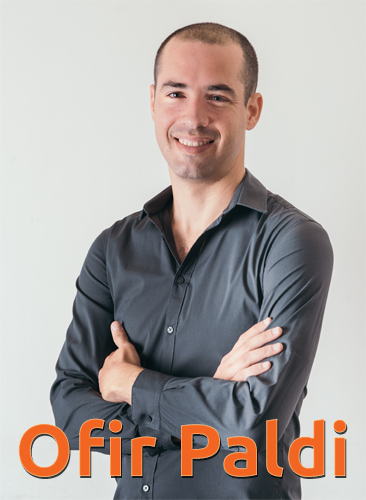
Fighter Pilots and Entrepreneurs – How Organizations Learn
Read moreLearning from mistakes is a team process used by fighter pilot squadrons.
In this Tough Things First podcast, Ray Zinn chats with entrepreneur and former fighter pilot Ofir Paldi to discuss learning organizations.
Ray Zinn: Welcome to another Tough Things First podcast. This is a fantastic opportunity to be with you again today, and to just talk about, really, some very fundamental and good business principles.
My guest today is none other than Ofir Paldi. He is an entrepreneur from Israel. He’s only been here in this country, in the United States, for seven months. His company is Shamaym. He’s got about 25 people in this company. I’m going to let Ofir tell you a bit about himself, and his company before we jump right into the podcast.
Ofir, tell us a bit about Shamaym, and what it means, and a bit about what your company does?
Ofir Paldi: So, Ray, first of all, thank you for inviting me to the podcast, a great honor.
Shamaym actually means sky, or heaven. Before I’ll tell exactly what we are doing, I want to ask you to try and imagine an organization that every day becomes better than the day before. Organizations that every day, each one of its employees becomes better than the day before. An organization that everybody feels free to speak about their mistakes, to share their mistakes, to learn from their mistakes and from others. It sounds a bit off topic, maybe, but this is the reality for us, and for the organizations that we are working with.
I actually had a background in the Israeli Air Force, where what we call a debriefing culture is an amazing tool to create both a continuous learning organization, and a culture of excellence, accountability, transparency, and never repeating a mistake. (more…)
- Jul032019

Training to be an Entrepreneur
Read moreCan you train yourself to be an entrepreneur? Silicon Valley’s longest serving CEO says ‘yes’ and explains how.
Guy Smith: Hello once again and welcome to the Tough Things First podcast where we sit down and have a chat with Silicon Valley’s longest serving CEO, Mr. Ray Zinn. Today we’re going to be covering what I know is the topic dear to his heart, how does one become an entrepreneur and can you actually train yourself to be an entrepreneur. I know that this tickles ray because through some philanthropic outreach, he’s coaching the next generation of entrepreneurs at various college campuses around the country. He is the epitome of Silicon Valley entrepreneurship. So hello Ray. How are you doing today, sir?
Ray Zinn: Staying dry. Staying dry. So yeah, it’s been an interesting winter, one of the winter winters we had here so. Well, good to have you back with this Guy.
Guy Smith: It’s always a pleasure for me to be here. So let’s dive in and talk about some natural entrepreneurs, some entrepreneur wannabes. What separates those two creatures? What defines the natural entrepreneur and what defines the wannabe who maybe someday become one but isn’t quite ready for primetime?
Ray Zinn: Well, we are all entrepreneurs, so we’re all naturally entrepreneurs in that we do create, innovate and negotiate. So we’re all entrepreneurs. The differences between one that is willing to step out and run his own company, and I think that’s what you’re referring to, is the passion. Now not the passion to follow your passion, it’s to be passionate about what you do. I had a friend of mine who work for IBM, he’s a senior fellow at IBM, and when I was starting Micrel, he would ask me to tell him the story, “Tell me the story. How’d you start the company? How’d you do it?” I remember as a kid admiring various business leaders like John D. Rockefeller and so forth then that had made millions of dollars and I wondered how they did it. How does one get to the point where they’re like an icon? Whether like a Thomas Watson at IBM? Or how do you do it? How do you just start a company? (more…)
- Jun262019
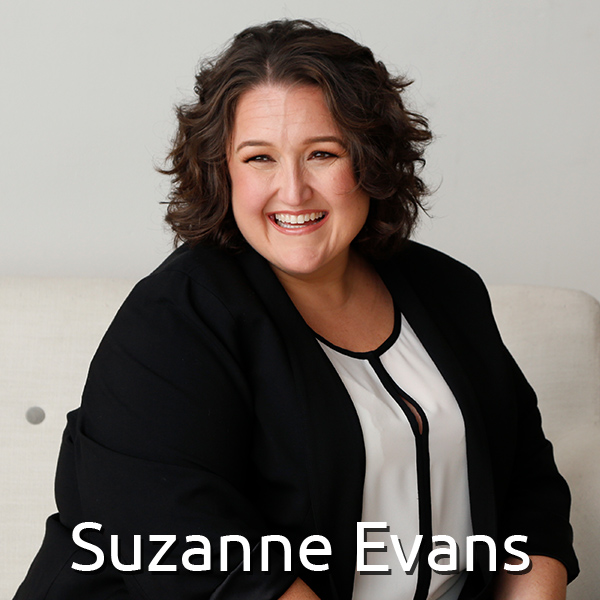
Fighting the Cycle of Quitting
Read moreHow do entrepreneurs get past the desire to quit? Ray Zinn, a man who avoids using the word “quit” sits in discussion with Suzanne Evans whose has been on the Inc 500/5000 list of fasting growing companies for 5 straight years.
Ray Zinn: Good morning everyone. So happy to have you with us today on this podcast. My name is Ray Zinn. I’m Silicon Valley’s longest serving CEO. Recently, I sold my company in 2015, and now writing books and just enjoying helping out universities with various projects that I have on Tough Things First.
With me today, I’m so delighted to welcome Suzanne Evans. Hello, Suzanne. How are you today?
Suzanne Evans: I’m awesome. Thank you so much for having me, Ray.
Ray Zinn: It’s delightful to have you. I think after reading your bio that I’m going to call you Suzanne “Wonder Woman” Evans because Suzanne has done some remarkable things. She started a business from basically a humble beginning, I think a secretary’s great, but it’s a humble beginning, to a company that does $7 million in sales in record time. She’s also written a book, New York Times Bestseller, How You Do Anything is the Way You Do Everything, which is really a nice title to a book. We’re going to talk a little bit more about that in this podcast.
She’s been on the Inc 500 and 5000 list for five straight years. She’s really just done remarkable things. Her book is a New York Times Bestseller. She’s helped thousands of business owners get on a fast track to success.
Her company’s called Driven, by the way. I’m sure she’ll tell us a little bit about what Driven is. That sounds good. Being Driven is a good thing. With that, Suzanne, tell us a little bit about yourself and your company, Driven, and how you help businesses.
Suzanne Evans: Thank you so much. It’s funny. We were bantering a little bit before we started the podcast today, and I am a seventh generation North Carolinian, but I think the most important thing is I’m seventh generation farm family. I believe the farmer was the original entrepreneur. I grew up in that family and that experience, and strangely moved from that experience to working in the Broadway theater industry. (more…)
- Jun192019

Crossroads
Read moreWe’ve all experienced crossroads in life, but is there a way to know when you’re making a good decision?
Ray Zinn has seen more than his share of turning points and crossroads, and in this edition of the Tough Things First podcast, Ray discusses the art of making the right moves.
Rob Artigo: Welcome back to another edition of the Tough Things First podcast. I’m your guest host, Rob Artigo, writer and entrepreneur in California. Hi Ray.
Ray Zinn: Hello Rob. Good to be with you this morning.
Rob Artigo: It’s great to be back. I’d like to pick your brain a bit about life experiences that influenced you. If you remember, maybe you’ve heard this quote before, legendary New York Yankee Yogi Berra once said, “When you come to the fork in the road, take it.” You recall that one.
Ray Zinn: Oh yeah. But that was a real thing because it was literally you could go on either road to get to his house. I was on a open house he was having and he just said, “When you come to a fork in the road, take it.” It applies to life also. It’s those forks in the roads that we said, “Well do I go left or do I go right?” The yin and yang as they say.
Rob Artigo: Were there some interesting crossroads that you came to in your life that sort led in directions that you just didn’t expect?
Ray Zinn: Absolutely. Life is that way. It’s a constant round as they say and we deal with the changes as they occur. I was born and raised on a cattle ranch and so my background is really more agrarian. Working with animals, agriculture. Never did I think at the time when I was growing up that I would ultimately end up as a CEO of a semiconductor company in the Bay area, Silicon Valley and being Silicon Valley’s longest serving CEO. Hindsight’s 20/20 so when you’re growing up, you don’t really know what’s going to happen but you do is you hope for the best and then expect the worst and then solve problems as they come up. (more…)
- Jun052019

Branding and Startups
Read moreStartup branding expert Keli Hammond chats with Silicon Valley’s longest serving CEO, Ray Zinn, about the importance of branding for early stage companies.
Keli Hammond is CEO of B Classic Marketing & Communications in Washington, DC and author of the marketing book Craved: The Secret Sauce to Building a Highly-Successful, Standout Brand. A highly sought-after speaker, trainer and writer, Hammond regularly speaks to groups of business owners, students, and women about self-care and personal and professional growth. You can learn more at KeliHammond.com and can find her book at CravedBook.com
Ray Zinn: Well, good morning, or good afternoon, wherever you are today. We are so delighted to have this podcast today with you and my name in Ray Zinn; I’m the author of Tough Things First, and also the website, as well as Silicon Valley’s longest serving CEO. I am very honored and privileged to have a very special guest with me today, this is Kelli Hammond. She, I think, is in Washington D.C., she is an author, she’s consultant, she helps people brand their products and their company, and she’s just an all around extremely competent and helpful person. So welcome today, Kelli, glad to have you on the program.
Keli Hammond: Thank you so much, it’s an honor to be there.
Ray Zinn: So can you tell me a little bit more about yourself to our audience, Kelli, about you and kind of what you’re up to?
Keli Hammond: Sure. So I actually just finished my debut book, the name of it is Craved: The Secret Sauce to Building a Highly Successful Standout Brand. I wrote it … so I have 15 years of industry experience in marketing communications, advertising, brand development, positioning, all of those different kind of business strategy pieces that are flanked under the umbrella of marketing. So I wanted to take all of that expertise and the knowledge that I’ve accumulated over the years, having seen so many different brand problems, and kind of distill it into a really clear, highly fundamental and foundational book that really walks people through all of the things that go into branding and marketing yourself or your brand or business.
Ray Zinn: Well I’ve heard about branding, what’s so funny is that, as a kid, I was raised on a cattle ranch and my grandfather was a brand inspector, and so each cattle owner had his own brand and it’s a special, unique little symbol that we would put on the back of the animal, on his rear, and that would then identify him as being owned by that particular brand owner. And it’s so funny because my grandfather, we’d go round and he would inspect these cattle and make sure that they were owned by that person, and so I always thought branding was putting this identification on the back of an animal, and so here we are, talking about branding but in a different format. So-
Keli Hammond: They are related, actually, which I’m sure we can find some type of way to link in, tie it together. (more…)
- May222019

ZinnStarter Student Questions
Read moreA Q&A between Ray Zinn, the longest serving CEO in Silicon Valley, and some new ZinnStarter Fellows – students participating in Ray’s college entrepreneurship project.
- May082019

Innovation Changes
Read moreDecades of innovation in Silicon Valley show no signs of slowing.
In this Tough Things First podcast, Ray Zinn talks about what’s next as little silicon valleys pop up in other areas of the country.
- May012019

Zinn’s Law
Read moreIt’s hard to put life into simpler terms, but Zinn’s Law establishes a paradigm that’s hard to oppose.
In this edition of the Tough Things First podcast, Ray Zinn details this idea and explains why it may be helpful at any stage in life.
Rob Artigo: I’m Rob Artigo, your guest host for another edition of the Tough Things First podcast with Ray Zinn. I’m a writer and entrepreneur in California being invited back. Ray, it’s always a pleasure.
Ray Zinn: Thanks Rob for joining us today.
Rob Artigo: Well, I’ve heard you talk about Zen’s Law. For our listeners of course, what is Zen’s Law?
Ray Zinn: Well, over the years I’ve developed an understanding about there’s a time and a season for all of us. In other words, there’s a time and a place. Time to get married, a time to have children, a time to start your own company or whatever, so the time and the season is what Zen’s Law is all about.
When it relates to your earning power, when it relates to your ability to provide for your family, there’re some characteristics you need to understand.
In the first leg of your life, getting an education should take up until you’re about age 25, whether you get an undergraduate or a masters or whatever. By the time you’re 25 you’re getting educated. In other words, you’re forming the basis of your career. (more…)
- Apr242019

Setbacks
Read moreSince the day we learned to walk it seems we’ve faced setbacks and challenges. If dealt with properly, these moments helped catapult us toward success.
In this edition of the Tough Things First podcast, Ray Zinn talks discusses his own setbacks and how perseverance turned the tide.
Rob Artigo: Rob Artigo here once again, your guest host for this edition of The Tough Things First podcast. I’m a writer and investigator in California. Being invited back, always a great pleasure. Ray, hi.
Ray Zinn: How you doing, Rob? Good to be with you today.
Rob Artigo: We all know the natural order of life is that we experience ups and downs. You’ve had a remarkably successful life. We know from this podcast that you’ve been fired from jobs and you had other setbacks, failures, and disappointments, pretty much like everybody else, every normal person in the world. Let’s talk about your setbacks and how you dealt with them. Do you have a setback that stands out to you that led you to an unexpected place?
Ray Zinn: Well, you know we talk about failure as a great educator. Now we don’t want to fail just for the sake of failing. Now because we make mistakes and because we are, as they say human, we are prone to error. And rather than use, get grumpier, get upset because we have these setbacks, we should look at them as learning processes. So yes, absolutely there have been times when I’ve stumbled and had to pick myself up again. As you pointed out, I’ve probably been fired five times. Tom Peter says if you’re not getting fired, you’re not trying hard enough. So, I can say I tried awfully hard because I was fired a lot of times. (more…)
- Apr172019

Advice
Read moreMost people can relate to the idea that advice is everywhere, it’s what you do with that information that matters most.
In this Tough Things First podcast, Ray Zinn explores the advice he values most and where you’re likely to find the best advice.
Rob Artigo: I’m Rob Artigo, your guest host for this edition of the Tough Things First Podcast. Hi Ray. Good to be back.
Ray Zinn: Thanks Rob. Good to be with you today.
Rob Artigo: Well, we’ve heard on this podcast you talking about growing up early because you lost your father at a young age and we’ve talked at length about the work you’ve done on the ranch. You ever once told a story about how you at age four your mother, sent you on a task to go to the store and get eggs and milk and whatnot. Age four? Let’s talk about some of the advice that you’ve received. Any recollections stand out to you for the advice you most valued when you were growing up?
Ray Zinn: As you pointed out, I lost my dad when I was 26. I had already graduated and got married. He left nine children at home at the time when he passed away. And I had to pick up the slack there, helping my mother with the children even though they lived not around me, close wise. I had to help financially to some degree. And then mentoring my siblings. So I became actually their surrogate father. But some of the advice that I can remember that really panned out was my neighbor who was a very well educated civil engineer and very successful, told me to go into engineering. (more…)
- Apr102019

Asia and competition – from Japan to China
Read moreHas much changed with Asia and international competition? Is China in the 21st century what Japan was in the 20th?
Professor Robert Wood of San Jose State University joins Ray Zinn in a conversation about trade with Asia, then and now.
Robert Wood: Hello podcast listeners this Robert Chapman Wood. I’m professor of Strategic Management at San Jose State University in Silicone Valley, and I’m today’s guest interviewer on the “Tough Things First” podcast.
We’re building on Ray Zinn’s book, “Tough Things First” and we’re going to talk about one really tough thing today, and that’s US-China business relations.
There seems to be a real battle going on for economic supremacy between the US and China, and that actual recalls the battle I personally experienced about 30 years ago when I was a journalist in Japan. I think Ray experienced the US-Japan battle very differently, so I want to start by saying, “Ray, can you talk about how your company experienced the US-Japan battle of the 20th Century?”
Ray Zinn: Sure, and thanks a lot, Robert, for joining us on this podcast it’s a real honor to have you and your expertise to talk about this important subject.
So as I think about, of course, I hate to give away my age, but I was born during the depression era, and at the beginning of the Second World War. So I’m very familiar with what happened after the war and what Douglas McAurther wanted to do to help Japan. And of course, he got Japan economically on its feet. The way, of course, that any economics work there’s a, what they call the first law of economics, which is: Individual A benefits from Individual B as long as Individual B’s loss is less than Individual A’s gain, is considered a good economic principle. The thinking was, Japan’s going to benefit from the US helping get Japan on its feet and then because it’s a small cost to the US, but a big gain to Japan. (more…)
- Apr032019
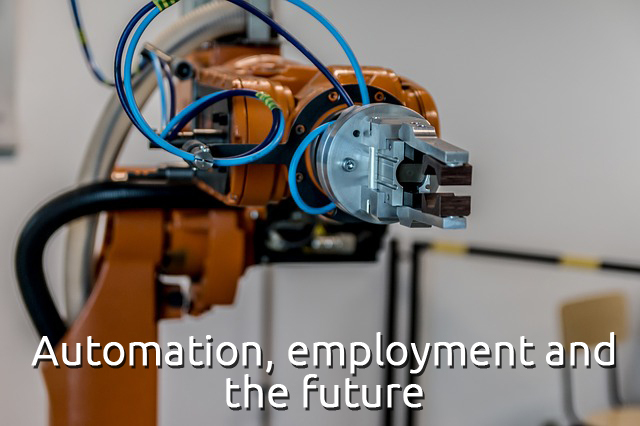
Automation and Work
Read moreAutomation isn’t going away. As the use of AI technology and robotics seize ground once firmly occupied by the working class, is there a point of diminishing returns? In this edition of the Tough Things First podcast, Ray Zinn answers questions about what the future holds.
Rob Artigo: Rob Artigo here again. Your guest host for this edition of the Tough Things First podcast. I’m a writer and investigator in California. Being invited back is always a pleasure, Ray.
Ray Zinn: Well good to be with you again, Rob. It’s always fun to have you on the program.
Rob Artigo: We appear to be transitioning from a mass employed service sector economy to a thinner employed service sector economy which is more dominated by artificial intelligence and robotics. Is that a … At least that’s the way I see it. Is that a fair assessment of what’s going on? The trends you’re seeing?
Ray Zinn: Well it’s gonna be that way. It’s been that way ever since the industrial revolution. So we’re not talking about something that’s happened the last 20 years, we’re talking about something that’s been going on for over 100 years.
Rob Artigo: Is it speeding up? Are we seeing a quickening in that area?
Ray Zinn: Well I don’t know if it’s speeding up, per se. It’s certainly continued to accelerate. If I just look at my lifetime and what has come about, we’re having to deal with more and more things and then to do that we innovate and create things to help us do it, like the computer, for example. Personal computer, actually, has given us much more capability and allowed us to be more productive than we were in the past. So I mean, people worked longer hours as a farmer, my parents were in agriculture, they work long hours because there was so much they had to get done in a day, whether it be milking the cows or feeding the cows or raising the feed for them, all that had to be done in a timely way. And you couldn’t just say, “Well I just can’t do that.” And say I’ll just shorten my day so I can have more time to go off and have fun or be with the family. So, you know, the 18 hour days were not unusual in that time period. The farmers used to get up at like 4:00 in the morning and they didn’t retire until 8:00 or 9:00 or 10:00 at night. So I mean, they barely got in six or eight hours of sleep and there was no time, as you would, for doing the fun things like going to ball games or just enjoying an evening with your family.
I think the average worker today probably (more…)
- Mar272019

Minting Entrepreneurs
Read moreEntrepreneurs develop over time through a variety of paths, but is there something different about a successful entrepreneur?
In this edition of the Tough Things First podcast, Ray Zinn and guest host Rob Arigo break down what makes a successful entrepreneur.
Rob Artigo: I’m Rob Artigo, your guest host for this edition of the Tough Things First podcast. Hi, Ray. It’s good to be back with you.
Ray Zinn: Well, Rob, you’re here again. So, good to be with you.
Rob Artigo: Time for another great conversation. We know there is a myriad of ways to get a business education; the experience and training, but is any of that, or even all of that put together, guaranteed to produce a genuine entrepreneur?
Ray Zinn: Let’s first of all talk about what is an entrepreneur. An entrepreneur is a creator, innovator, and negotiator. So if you look at it in those terms, any one of us, you included, myself included, are entrepreneurs. What differentiates an entrepreneur who runs a company and just an entrepreneur that maybe has a little backyard service, as you would, or garage service, is passion. So what differentiates entrepreneurs that are willing to make that big leap is their passion. How passionate are they about what it is they want o do? And so, that doesn’t mean they’re gonna be successful, just because they have passion. But we’ll talk about that in a minute, about what’s the difference between a passionate entrepreneur and being a successful entrepreneur. (more…)
- Mar202019

Negotiations
Read moreThe give and take required for successful negotiation stymies the stubborn.
In this Tough Things First podcast, Ray Zinn and guest host Rob Artigo discuss fundamentals of negotiating and how to be successful even when you aren’t getting everything you want.
Rob Artigo: Welcome back everyone to another edition of the Tough Things First podcast. I’m your guest host, Rob Artigo, I’m a writer and entrepreneur in California. Hi Ray.
Ray Zinn: Hey Rob. So good to be with you this morning.
Rob Artigo: I have a good question here and I think lots of people will be able to relate to it because we’ve been hearing a lot about the idea of negotiating on a national level. Donald Trump, as you know, penned a famous book called The Art of the Deal and it has been discussed a lot frequently because of the context of the negotiations with Congress to get border wall funding. Some have said that there are failures built into this that show that Donald Trump isn’t such a great negotiator after all, so as an outside observer Ray, would you agree with that? I mean just based on what you’ve seen?
Ray Zinn: I think negotiations are really a tough subject and it depends again what we’re negotiating on and how important it is to a particular individual. If for example you’re negotiating with your spouse about where you are gonna go to eat and you don’t care, then it’s not a very difficult task but if where you go to eat is extremely important and depending upon the setting and depending upon the cost, depending upon the kind of cuisine, it can be kinda heated and debated. It’s not something as simple. When we talk about negotiating, we don’t necessarily put it all in one bucket. It all depends again upon the motivation of the individuals.
In the case of President Trump and negotiating with regard to whether we do a government shutdown or whether they fund his border wall is a matter of principle and so if the one side says, “We don’t want him to have that little feather in his cap that says that he got that border wall built,” then they’re gonna resist and they’re willing to throw the baby into the fire to prove their point. Then of course President Trump on the other hand is gonna stand rigid and say, “Hey, you want to put all these people out of work? You guys go right ahead.” It depends upon what each side feels they have to lose.
Rob Artigo: Ray, isn’t it like the idea of the stakes are different, and I love this idea of talking about Congress and the president negotiating over the wall because metaphorically you could really place this on top of other issues, whether it’s business or personal like you said, even just deciding with your wife what place you’re gonna go eat, but the idea of stakes and what struck me there, what you were just saying is that in the context of this negotiation, you may find one side, the stakes aren’t the wall for both sides. The stake for Congress appears to be whether or not Donald Trump gets a “victory” and gets what he wants so if they’re trying to avoid that, if they’re trying to avoid Donald Trump getting a “victory” here, then that’s different than Donald Trump’s intent. His goal, the stakes for him is he wants to get the border wall done.
Ray Zinn: I mean, it’s a matter of victory again. He’s promised his constituents that he would build a wall during his administration. It’s a victory for him and it’s a victory for the other side if they can prevent him from doing it because they’re showing their power. Let’s see who’s really got the power and so it’s all about fighting. A negotiation is somewhat of a fight. If there’s no contest, then there’s no fight. If there’s a point to be made, then all hands on deck, they’re gonna try to make their point. Let’s be factual about this, the Congress does not love the president at all, at least the current Congress does not love president, and the president really doesn’t care for them either. He wants to drain the swamp, calling them swamp monsters is not going to sit well with them. When you go into negotiation, if both sides hate each other, negotiations aren’t gonna go very well.
The first thing that we have to think about when we’re negotiating is what kind of … Where do we stand with regard to the individuals we’re negotiating with? Whether it be a teacher strike or whether it be a particular direction we want to head the company, if there’s a team effort, in other words, if we’re trying to negotiate the best outcome and the team basically like each other, then negotiations go relatively smooth. There’s compromises that will have to be made, but it will be a rather smooth transition whereas if there’s animosity and if there’s hard feelings, negotiating is not gonna go well, period. The best way if there is animosity, if there is hard feelings between two parties or multiple parties, then what we have to do is figure out what kind of compromise can be made where both parties walk away smiling. In other words, there’s give and take.
I think we saw a little bit of this recently when the bill was put before the president to sign that Congress passed, Congress and the Senate passed for overcoming the government shutdown and then they gave him 1.4 billion for the wall. They didn’t give him much for the wall, but they avoided a government shutdown, another government shutdown. That was a compromise, so if you remember, the Democrats or Nancy Pelosi said we’re not gonna even give him a dollar. They gave him more than a dollar, they gave him 1.4 billion dollars. He got something, he just didn’t get what he wanted so they declared the victory, the Congress says, “Okay, we were victorious because he didn’t get what he wanted, he didn’t get five point whatever billion for his wall,” and we also avoided a government shutdown. Trump says, “Well, they gave me more than a dollar,” and so he declared victory and avoided a government shutdown.
That’s kind of the way compromises are done. Both parties take a victory lap and smile. They may not get exactly what they want but in any negotiation, I don’t know if anybody gets exactly what they want, whether you’re buying a car or whether you’re buying a home or you’re sitting on negotiating a price and both sides are trying to get the best deal for them. You’re never going to get everything you want. When you go into negotiation, the first thing you must ask yourself is where do I draw the line? In other words, how far am I willing to go and we all do that. We all say I’m not gonna pay any more than this or I’m not gonna accept any more than that and so they’ve already set their bottom line and then they try to work towards something where both of them end up not having to cross their bottom line.
That’s the key to negotiating. You go in with the idea of a resolution. If you’re going into a negotiation [inaudible 00:08:59] we don’t want a resolution, then just walk away. Just don’t even go any further. If a resolution is being sought, a true resolution is being sought, and your bottom line, you’ve accepted, in the instance here of President Trump, he said, “I’m gonna get more than a dollar.” That’s kinda what he told himself. “If I can’t get more than a dollar, we’re gonna shut the government down.” The other side says, “Well, as long as we don’t fund anything anybody could say was an appreciable amount of what Donald Trump is asking for, then we can take a victory lap because we avoided a government shutdown and at least he didn’t get all of his money to do what he wants.” They changed the name from wall to fence and some other ridiculous things, and that’s how stupid negotiations actually get sometimes. They actually get that way, where people act stupid and silly. That’s unfortunately the way compromise works sometimes is that you make silly compromises.
Rob Artigo: I guess from what I’m hearing you say and then the example of Congress and the president is that it was important, it was more important to break the logjam or the impasse that they were facing than to get the perfect deal on either side.
Ray Zinn: They were avoiding a government shutdown is what they were avoiding. They said, “Okay, what can we do to avoid a government shutdown? Well, we gotta give Donald Trump more than a dollar,” and Donald Trump says, “I’ve gotta get enough to say that I can at least build something of a wall, 58 miles,” and so that’s what they did. In the back of his pocket, he’s been saying this for some time, that he’s just gonna invoke a presidential … Make a presidential decision and declare an emergency. He always had in the back of his pocket and he knew he wasn’t gonna get five plus billion because the other side would have lost. In other words, they would not have been able to take a victory lap. He’s been gearing up to do this emergency declaration. That’s kinda what’s happened and that’s what we do in negotiating. We make compromises and move forward.
Rob Artigo: As always, you can reach out to Ray Zinn with your questions at ToughThingsFirst.com. Continue your education in this conversation with all the podcasts, Ray’s blogs, links to the information about the book Tough Things First and Ray’s new book, The Zen of Zinn, a collection of writings on interrelated topics of entrepreneurship, leadership, management, discipline, determination, society, people, and life, that’s The Zen of Zinn. Thanks again Ray.
Ray Zinn: Hey thanks Rob. It’s always fun to talk with you.
- Mar132019

Managing Multiple Generations
Read moreManagers today might lead teams with Baby Boomers and Generation-Z members. How does a good manager lead such a diverse set of employees?
Guy Smith: Hello and welcome again to another episode of the Tough Things First podcast, a weekly dive into management leadership and a bit of Silicon Valley as well. I’m your host this week, Guy Smith, and I’m going to dive into a topic here that I personally find fascinating. This may not have happened before in our society, but we’re at a point where we have four different generations active in the workforce right now, the Baby Boomers, Generation X, the Millennials, and Generation Z is just now entering the workforce.
In Silicon Valley, we’ve got an eclectic mix of young turks and gray beards, so Silicon Valley is a good place to kind of think about how you lead such radically different people, and who better than to ask than the longest-serving CEO in Silicon Valley. That’s of course Mr. Ray Zinn, and how are you today, Ray?
Ray Zinn: Well good, Guy. I’m trying to get over a cold, but we’re managing our way through it. This is an interesting topic that you’ve got today. So let’s kind of dive right into it.
Guy Smith: Yeah, I’m really fascinated by this because from a leadership standpoint, from an organizational policy standpoint, there are a lot of different parts of the fabric that are tugging against each other. So let’s start with the extremes. The Baby Boomers are on end and we’ll stop with the Millennials at the other end for the time being. For me, contrast the motivational differences you see between Boomers and Millennials. What is it that they respond to differently in an organizational setting?
Ray Zinn: Well one advantage that I have of course is that I’ve been able to span at least three of those generations. I don’t know if you consider me a Baby Boomers but I did come out of the second world war where I was just a youth. And my grandparents, which would be in the pre-first world war, they had a different environment they were in. Horse and buggy was still the fare, as you would. Cars were just coming into being. The way people traveled, the way they moved together as families, was entirely different than it was for me when I grew up. I grew up, basically our families were all kind of together and we didn’t move anywhere. I mean, we stayed in the same spot. So our cultural differences were minimal and there wasn’t the huge immigration issue that we face today, with a more diverse society. (more…)
- Mar062019

Say NO to NO
Read moreSelf help gurus may entice you to learn to say no, but is that going to really get you anywhere in business?
In this Tough Things First Podcast, Ray Zinn says YES to answering the question.
Rob Artigo: I’m Rob Artigo your guest host for this edition of Tough Things First, the podcast with Ray Zinn, the longest serving CEO in Silicon Valley. Hello, again, Ray.
Ray Zinn: Well, good to have you again with us, Rob. You’re always a delight to talk to and have you on these podcasts.
Rob Artigo: Thank you, Ray. This idea of learning to say no has a lot of supporters. It’s out there. I’ve seen it in several forms. I know that somebody’s famous for having written whole books about it. These supporters of you’ve got to learn to say no, say we should learn to say no. Many of us, apparently, don’t have that skill, so we need to learn it. Do you buy that idea?
Ray Zinn: On the surface, no. Some of the people that I know that have written on this subject really never have run a company before. I think this whole notion that you should just say no is just a cop-out and I don’t buy into it. It’s, I think, somebody just trying to sell some books or just trying to sell a notion because it tingles in their ear. So if you’re a person who would like to say no, you’re going to say no anyway, you don’t need somebody to tell you just to learn to say no. It just made you feel better for somebody to say, “Just say, no.”
And so, to me, it’s really the people that buy into it are the ones who believe in that concept, and I’m not sure we’re going to change anybody’s mind when we talk about the concept of just say no, but for those of you who also adopt out feeling on the subject, that just saying no is not a good thing because you don’t know how it’s going to impact the other person. No one likes to hear no, no one. This notion that somewhere there’s a new paradigm out there for everybody learning to say no, I think is a harmful thing. (more…)
- Feb272019
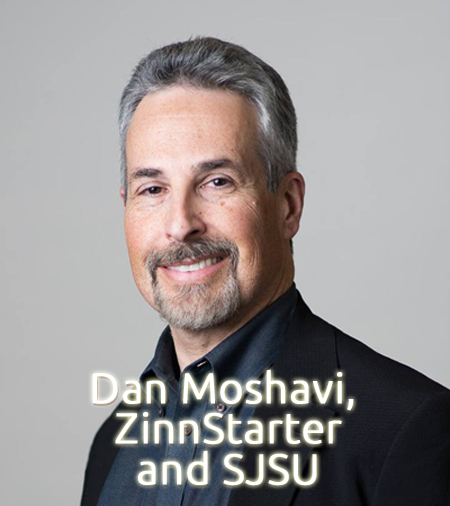
Education for Entrepreneurs
Read moreDan Moshavi, the Dean of the Lucas College and Graduate School of Business at San Jose State University, chats with Ray Zinn, the longest serving CEO in Silicon Valley, about entrepreneurship education, what classes are important for entrepreneurs, why passion is critical for them, what are the key lessons of entrepreneurship they should embrace, and the mission of Ray’s ZinnStarter program.
Ray Zinn: Welcome again to one of our great podcasts, Tough Things First. Visiting with me today is Dan Moshavi, who’s a dean of the Lucas College of Business at San Jose State University. So Dan, thank you for, again, joining us. I’m sure we’re gonna talk about education one more time.
Dan Moshavi: Absolutely, Ray. It’s my pleasure to be here, and thank you for inviting me into this mix and for sharing your wisdom with not only our students, but around general business education issues. As you know, San Jose State’s one of the largest business schools in California. We’ve got 5,000 students on campus. We have a robust and growing entrepreneurship program. And, as the only public university in Silicon Valley, we really are a key player in powering this valley. We have tens of thousands of alumni working here. They build successful careers here, including … We have 800 alumni members of our chief financial officer network who are current or former CFOs in Silicon Valley. And, many of our alumni have also been successful entrepreneurs. And, I know that entrepreneurship is near and dear to your heart, Ray, and your ZinnStarter Program is certainly a testament to that. So, I’d like to get your thoughts on entrepreneurship education today, if I can.
Ray Zinn: No problem. In fact, my last CEO … CFO, I’m sorry. My last CFO at Micrel, Bob [DeBarr 00:01:59], he’s since passed away, God rest his soul, was a San Jose State graduate, got his master’s at San Jose State. So, that was my last CFO before we sold the company.
Dan Moshavi: That’s great. Thanks for sharing that. Let’s dive into entrepreneurship education a little bit. So in your view, what are the most important courses a student interested in entrepreneurship should take?
Ray Zinn: Oh, this is one of the most favorite questions I get asked. And, it’s so important because they’re classes with principles. The first one is economics. Economics is a very broad field, but understanding and learning economics, and how the various components of economics apply to business, are very important. Second, is accounting. As a CEO or an entrepreneur, you can’t run your business unless you understand accounting. And, accounting is just a very complicated, but, yet, very worthwhile field for them to learn and understand. Transactions, learning general ledger, understanding how the cash flow statement’s put together, balance sheet, income statement … They’re so important. You can’t even be a board of directors in California anymore, maybe across the country, unless you understand accounting. (more…)
- Feb202019

Setting Expectations
Read moreHow does, and how should, a business leader set expectations for employees?
In this episode of the Tough Things First podcast, Silicon valley’s longest serving CEO discusses the public and private motivations employees have, and what a leader needs to consider.
Guy Smith: Hello again, and welcome to another episode of the Tough Things First podcast. I’m your guest host today, Guy Smith and it’s like always a pleasure to be back here with my buddy Ray Zinn. Good morning Ray. How are you doing today?
Ray Zinn: I’m doing just fine Guy, so good to be with you again this morning.
Guy Smith: Well, fantastic. And now we’re on opposite sides of the country I can only imagine what weather over your way is. Out here in North Carolina it’s about as beautiful as beautiful gets.
Ray Zinn: It’s beautiful here too, but probably a difference in temperature maybe.
Guy Smith: Well the leaves are turning here, so everything is looking very very wonderful.
Hey listen, what I wanted to talk to you today about is setting expectations among employees, communicating with employees about the ever shifting goals and objectives that are likely with inside of teams, because you know businesses are in dynamic environments, everything’s constantly in a state of change, and employees have, you know certain expectations that come and go over time. And that’s what I really wanted to dive into because I’ve got to imagine that that’s one of the more personal but also possibly intricate and tedious tasks that a leader has to deal with managing the expectations of a team.
You know, so for our budding entrepreneurs who make up a large part of your audience, what are the kind of employee expectations that they really need to be managing? What are the ones that, you know are going to be most important in keeping teams happy, motivated, innovating, and doing the right job?
Ray Zinn: There’s two components to it. One is reality, in other words what is the way things are, the business climate. For example, just in the last week or two, the stock market has really been going down, down, down, so the expectation is that the market will continue to go up, and up, and up, and up, and up but that’s unrealistic. What comes up must also come down. (more…)

